
[Editor’s note: be sure to read the comments on this post for more novellas and more Filer reviews.]
By JJ:
TL;DR: Here’s what I thought of the 2019 Novellas. What did you think?
I’m a huge reader of novels, but not that big on short fiction. But the last few years, I’ve done a personal project to read and review as many Novellas as I could (presuming that the story synopsis had some appeal for me). I ended up reading:
- 31 of the novellas published in 2015,
- 35 of the novellas published in 2016,
- 46 of the novellas published in 2017,
- and 38 of the 2018 novellas.
- (and this year I was waiting for access to a few novellas, so I was reading others, and thus my final total crept up to 55!)
The result of these reading sprees were
- the 2016 Novellapalooza,
- the 2017 Novellapalooza, and
- the 2018 Novellapalooza.
I really felt as though this enabled me to do Hugo nominations for the Novella category in an informed way, and a lot of Filers got involved with their own comments. So I’m doing it again this year.
The success and popularity of novellas in the last 5 years seems to have sparked a Golden Age for SFF novellas – so there are a lot more novellas to cover this year. By necessity, I’ve gotten to the point of being more selective about which ones I read, based on the synopsis being of interest to me.
It is not at all uncommon for me to choose to read a book despite not feeling that the jacket copy makes the book sound as though it is something I would like – and to discover that I really like or love the work anyway. On the other hand, It is not at all uncommon for me to choose to read a book which sounds as though it will be up my alley and to discover that, actually, the book doesn’t really do much for me.
Thus, my opinions on the following novellas vary wildly: stories I thought I would love but didn’t, stories I didn’t expect to love but did, and stories which aligned with my expectations – whether high or low.
Bear in mind that while I enjoy both, I tend to prefer Science Fiction over Fantasy – and that while I enjoy suspense and thrillers, I have very little appreciation for Horror (and to be honest, I think Lovecraft is way overrated). What’s more, I apparently had a defective childhood, and do not share a lot of peoples’ appreciation for fairytale retellings and portal fantasies. My personal assessments are therefore not intended to be the final word on these stories, but merely a jumping-off point for Filer discussion.
Novellas I’ve read appear in order based on how much I liked them (best to least), followed by the novellas I haven’t read in alphabetical order.
I’ve included plot summaries, and where I could find them, links to either excerpts or the full stories which can be read online for free. Short novels which fall between 40,000 and 48,000 words (within the Hugo Novella category tolerance) have been included.
Please feel free to post comments about any other 2019 novellas which you’ve read, as well. And if I’ve missed your comment about a novella, or an excerpt for a novella, please point me to it!
(Please be sure to rot-13 any spoilers.)
(fair notice: all Amazon links are referrer URLs which benefit non-profit SFF fan website Worlds Without End)
Waterlines by Suzanne Palmer, Asimov’s July-August (full text)
Synopsis: This is a far-future mystery story taking place on a wintry planet colonized by a few hundred descendents of the Earth diaspora, who share the planet by treaty with a race of humanoid-robot symbionts who live under the sea. When the aliens bring three human bodies to the colony administrator, he must figure out who they are (no one is missing) and how and why they were killed – but as he begins to investigate, he is targeted by the killers, who are hiding a very big secret.
What I thought: The author of the Hugo-winning “The Secret Life of Bots” has hit it out of the park again. The worldbuilding is vivid – I felt the surroundings quite keenly, as if I was there – the plot is engrossing, and the characterization is excellent, with the added bonus of the author’s lovely brand of subtle snark. The story, about who gets to be considered as human, granted agency, and treated with respect, touches on themes of racism, xenophobia, and ethnocentrism. This was the only novella out of the 48 I’ve read this year that made me jump up and down. It’s definitely going on my 2020 Hugo ballot.
Filer comments:
Mark-kitteh: +1 to JJ’s rec, fascinating setting and a great story.
Bonnie McDaniel: Thirding Suzanne Palmer’s “Waterlines.” Fascinating setting and story. I’ve only read a few novellas so far this year, but this one’s definitely at the top of the list.
Nina: There’s a good balance between interesting worldbuilding, character moments, action, and investigation. The growing friendship between the two main characters was well-written, and I liked the descriptions of the aliens’ technology.
Doctor Science: 4 stars. To me this story has a kind of retro feel, it reminds me of the stories from the 40-60s I read in anthologies as I was growing up in SF. That’s probably because the hero is a male loner, tryin’ to do his best at the back end of nowhere, Solitary Man, and none of the humans have names that couldn’t come from northwestern Europe. And because a bunch of plot twists seemed pretty obvious to me, though I was pleasantly surprised when gur uhznabvq angher bs gur Renkvnaf jnf qhr gb pbzzba naprfgel, not authorial sloppiness. But I enjoyed it, and I appreciated how it reflects what I learned when an e-friend spent several winters at the South Pole and blogged about living in Antarctica.
Lorien Gray: Count me as another enthusiastic fan of Waterlines. Great characters, story and worldbuilding. It’s making my Hugo nomination ballot. And Dunfroze is a great name for a town on an iceworld.
The Work of Wolves by Tegan Moore, Asimov’s July-August (full text)
Synopsis: This story is told from the viewpoint of an enhanced-intelligence trained K9 Search-and-Rescue dog which has been enabled with the ability to communicate with her trainer more fully than normal dogs. The trainer is uncomfortable with her new, highly-sentient partner, and the dog describes her efforts to win over the affections of her trainer, while also relating the details of their search missions.
What I thought: I thought the worldbuilding of a near-future Earth affected by global warming and the enhanced intelligence of the dog is extremely plausible and well-done (the author is a professional dog trainer, which no doubt contributes to the verisimilitude). And the story itself is not only entertaining, but touches on the ethics of meddling with evolution and uplifting animals into higher sentience. The ending packs a real punch. Highly recommended; this is on my Hugo Novella ballot.
Filer comments:
Kendall: that was great! I also rec it.
Permafrost by Alastair Reynolds, Tor.com Publishing (excerpt)
Synopsis: In 2080, at a remote site on the edge of the Arctic Circle, a group of scientists, engineers and physicians gather to gamble humanity’s future on one last-ditch experiment. Their goal: to make a tiny alteration to the past, averting a global catastrophe while at the same time leaving recorded history intact. In 2028, a young woman goes into surgery for routine brain surgery, but in the days following her operation, she begins to hear another voice in her head… an unwanted presence which seems to have a will, and a purpose, all of its own – one that will disrupt her life entirely.
What I thought: I think this novella is excellent, with an interesting scientific twist and a plausible near future. The exception is that I had a hard time buying the idea that their goal was going to be enough to save them – but I guess that truly desperate people will grasp at the slightest chance for hope, if it’s the only chance they’ve got. This is one of the few 2019 novellas I’ve read that I feel I can wholeheartedly recommend.
Filer comments:
Mark-kitteh: A solid, interesting, and exciting tale of ecological disaster and time travel. This is clever and well-written stuff, with a twisty structure that suits a time-travel tale. Being a novella there’s a lot not explored – the tech and time travel is rather sketched out, and more importantly I wanted to get more of the protagonist’s backstory – but that’s the nature of the novella length.
Bonnie McDaniel: Unfortunately, I was pretty meh about the overall story.
StephenfromOttawa: I… thought it was very, very good. A sophisticated time travel story, brilliantly executed.
Gremlin by Carrie Vaughn, Asimov’s May-June (full text)
Synopsis: This story is sort of a reversal on the famous Shatner Twilight Zone episode “Nightmare at 20,000 Feet”: it’s a multi-generational story of a family line of women pilots, stretching from WWII to the Iraq War to the far future, and the supernatural creature which shapes their destinies.
What I thought: Each of the focal characters gets enough screentime for us to get a feel for their personalities, and the author has done her research on real-life pilots, planes, and wars. Themes include respect and kindness for all living things, remorse at the costs and waste of war, and the recognition that other sentient beings are not pets, but full-fledged beings with their own agency and needs. There are some war battles and off-screen deaths, but this is a great feel-good story, and if you’re looking for something that’s interesting, engrossing, and enjoyable, I highly recommend it.
Unauthorized Bread by Cory Doctorow, in Radicalized, Tor Books (full text – audio excerpt)
Synopsis: This is a tale of immigration, the toxicity of economic and technological stratification, and the young and downtrodden fighting against all odds to survive and prosper.
What I thought: This novella is the gem of the quartet in Doctorow’s collection Radicalized. It’s a near-future extrapolation of the present, where the Internet of Things has been unsurprisingly used to prevent poor people from being able to exercise personal agency, followed by the inevitable consequences of hacking an unjust system. This story manages to be both uplifting and depressing at the same time. Highly recommended.
Filer comments:
Olav Rokne: I’ll second Unauthorized Bread. Possibly the best thing Doctorow has written.
Anxiety Is the Dizziness of Freedom by Ted Chiang, in Exhalation, Knopf/Picador
Synopsis: Quantum possibilities have been made reality in a device known as the “prism”, the Plaga interworld signaling mechanism. Once activated, it connects to a parallel universe which gradually starts to diverge from that point on – and people can talk to their “paraselves” in that other universe to see how things have gone differently for them in another life.
What I thought: As with all Chiang stories, this one is excellent, with musing on what makes us uniquely ourselves, how our decisions shape the person we will become in the future, and whether those decisions really matter if all possible variations of each decision are made by us in other universes. It didn’t quite have the “wow” ending I was expecting, but it’s nevertheless satisfying.
The Savannah Problem by Adam-Troy Castro [Andrea Cort / Draiken #5], Analog Jan-Feb (full text)
Synopsis: After decades as a covert operative, Draiken finally saw the light and has dedicated himself to destroying the machiavellian organization for which he once worked, along with its counterparts, all of which are engaged in committing a heinous crime against humanity. Now he is on a mission to capture a deadly enforcer/killer who works for a crime boss on a space station. But who are the mysterious clients waiting for delivery of the hostage on a nearby asteroid, why does him believe that the killer will be willing to cooperate with him, and how will this help him achieve his revenge?
What I thought: Not only is each of the stories in this series a standalone science-fictional mystery, they are so deftly-plotted, featuring intricate twists, that it’s only when the pieces slot into place that the brilliance of the plotting becomes apparent. The author has created compelling, well-fleshed-out characters, and fascinatingly-alien races and worlds, served up with intriguing spycraft and detective work.
Once, Future by Kat Howard, in A Cathedral of Myth and Bone, Saga Press
Synopsis: The students in a literature course at a modern-day university are engaged in a semester-long study of the Arthurian mythos and how its pattern is echoed in many events down through the course of history. As part of their immersion in the story, the students take on the names and roles of the various characters in Arthurian legend. And then something strange starts to happen…
What I thought: I’m not big on Arthurian retellings, but I think that this is a very good, rather unique contemporary take on The Matter of Britain. To say any more would spoil the story, so I won’t, but this is well worth the read.
Ormeshadow by Priya Sharma, Tor.com Publishing (excerpt)
Synopsis: Uprooted from his hometown by his father’s failures, a young man finds himself stranded on Ormeshadow farm, an ancient place of chalk and ash and shadow. The land crests the Orme, a buried, sleeping dragon that dreams resentment, jealousy, estrangement, death. Or so the folklore says. Growing up in a house that hates him, he finds his only comforts in the land, and he will live or die by the Orme.
What I thought: Set on Great Orme in Wales, this is a mythic fantasy of a young boy and the damage caused by emotional abuse and infidelity. Also, dragons! Ordinarily, this is not what I consider the sort of thing I enjoy, but I found it really well-written and full of vivid imagery.
Filer comments:
Mark-kitteh: I agree it’s well-written and vivid, but I remember finding it a tad unsatisfying – too much time brooding, not enough conclusion.
Glass Cannon by Yoon Ha Lee [Machineries of Empire], in Hexarchate Stories, Solaris
Synopsis: More than a decade after the empire-revolutionizing events of Revenant Gun, Kel Cheris’ quiet existence as a teacher on her home planet is destroyed when Jedao shows up begging for his 400+ years of memories, pursued by a small army of Shuos assassins. As they go on the run, they discover secrets about the empire’s technological tools — servitors and mothships — which mean that everything is about to change drastically once again.
What I thought: Taking place after the events of the final entry in the Hexarchate trilogy, this story is a great new fast-paced, suspenseful adventure which also considers the ethics of slavery. Those who have not read the Machineries of Empire series will be totally lost, but this is a definite must-read for the series’ fans.
Filer comments:
Bonnie McDaniel: I don’t know if Lee intends to write more novels in the Machineries of Empire universe, but if so, this makes for a terrific springboard. It deals with the reveals and aftermath of Revenant Gun, and throws a strategically placed bomb into the status quo. It probably doesn’t stand alone well (or at all), but for me, it was very satisfying to see my favorite undead General get his memories and his groove back.
To Be Taught, If Fortunate by Becky Chambers, Harper Voyager (excerpt – audio excerpt)
Synopsis: Through a revolutionary method known as somaforming, astronauts can survive in hostile environments off Earth using synthetic biological supplementations. With the fragility of the body no longer a limiting factor, human beings are at last able to journey to neighboring exoplanets which are known to harbor life. A team of four explorers are hard at work on a survey mission, but as they shift through both form and time, the culture back on Earth has also been transformed. Is anyone back home still listening?
What I thought: In a switch-up from the usual colony terraforming stories, this novella features a crew sent from Earth with the ability to adapt themselves biologically to each of the planets they explore, rather than changing planets to suit their biological form and wreaking eco-biological havoc in the process. As with the author’s other books, this one is a quiet, thoughtful exploration of human striving, touching on themes of colonialism and human arrogance and the kind of unintentional devastation which has so often come as a result. Well worth the read.
Filer comments:
Mark-kitteh: It’s a very optimistic view, and also in common it’s got much about the successful social dynamics of the ship. Although it’s never mentioned you get the impression the crew’s dynamics themselves have been engineered to last on years-long missions – the viewpoint character comes over as the glue holding together the rest.
I can see people tripping over the ending – news from home precipitates a major decision, and the solution might seem odd but to me fitted well with the themes of the story. If you are someone who dislikes the Wayfarers series for its cosy nature or unapologetic optimism, then you’ll find nothing here to improve your opinion. On the other hand if you object to her, ahem, loose use of science you may find more pleasing elements here as (at least per her acknowledgements) she’s put in the time and research to get elements of space travel and astrobiology right.
Kyra: A well-written novella and a welcome paean to the concept of science for its own sake. I found the very end a little bit heavy-handed – I had already gotten what was being said without the need for it to be spelled out for me – but that didn’t diminish my enjoyment of the rest of the book.
Contrarius: Hit my Chambers sweet spot. Her novel-length stories often end up boring me, but this one was just the right length to keep me interested. Yes, a decision made at the end is jarring, but we can also call it thought-provoking.
bookworm1398: Chambers’ writing is really remarkable. Some pretty horrible things happen in this book, but she fills it all with love and hope and it doesn’t seem so bad. If you liked her previous books, you’ll like this one. If you thought the previous ones were too slow, that’s true here also.
Vigilance by Robert Jackson Bennett, Tor.com Publishing (excerpt)
Synopsis: In the U.S. in 2030, a man executive-produces “Vigilance,” a reality game show designed to make sure American citizens stay alert to foreign and domestic threats. Shooters are introduced into a “game environment,” and the survivors get a cash prize. The TV audience is not the only one that’s watching though, and he soon finds out what it’s like to be on the other side of the camera.
What I thought: This a well-written near-future story of the “If This Goes On…” sort, in a world where gun violence has been fetishized into a reality show – but it’s far, far too close to current-day reality, and so utterly believable that it makes for extremely unpleasant reading. Definitely not recommended for those who have no spoons available.
Filer comments:
Mark-kitteh: Vigilance is an excellent story that I wish I’d never read. I’ve started a review of it several times, but just can’t express my simultaneous admiration of and revulsion at what Bennett managed to write.
The Fire Opal Mechanism by Fran Wilde [Gemworld #2], Tor.com Publishing (excerpt)
Synopsis: Jewels and their lapidaries and have all but passed into myth. Jorit, broke and branded a thief, just wants to escape the Far Reaches for something better. Ania, a rumpled librarian, is trying to protect her books from the Pressmen, who value knowledge but none of the humanity that generates it. When they stumble upon a mysterious clock powered by an ancient jewel, they may discover secrets in the past that will change the future forever.
What I thought: This is a cogent critique of religious fanaticism and persecution, wrapped up in an engaging adventure. Back when I read the first entry in this series, The Jewel and Her Lapidary – twice – I thought that it was too steeped in infodumping and wasn’t convinced that it held together quite well enough to be outstanding. I re-read Jewel before reading this one, and not only did I come away with a better estimation of the first story this time, I felt that this sequel really leveled-up in terms of plot and storytelling. Highly-recommended for fantasy fans, especially those who enjoyed The Jewel and Her Lapidary.
Made Things by Adrian Tchaikovsky, Tor.com Publishing (Prequel story “Precious Little Things“) (excerpt – audio excerpt)
Synopsis: In yet another of the author’s retellings of folk stories, this take on the E.T.A. Hoffmann story The Sandman and the ballet adaptation Coppelia features a young woman who makes tiny automatons, and the way they are brought to life and become their own little race of people.
What I thought: I found this story far more enjoyable than Walking to Aldebaran. Its length as a novella suits the depth of the story. I would possibly have found a full-length novel more satisfying, but perhaps the author’s judgment was wise in not trying to make more of the story than is supplied by its premise. Recommended as a quick, enjoyable read.
Filer comments:
BravoLimaPoppa: [On] my best list.
Mark-kitteh: An extremely readable and entertaining novella, featuring a young street thief who has acquired some very interesting little friends – the Made Things of the title – who are magically infused little figures. Add in a a very flavourful fantasy city, controlled by a magical oligarchy and survived-in by a criminal underclass, and some interesting worldbuilding, and there’s a lot packed into this novella.
Xtifr: Seconding the rec for Made Things. Very well done, and just about the perfect size for the story it told.
The Gurkha And The Lord Of Tuesday by Saad Z. Hossain, Tor.com Publishing (excerpt)
Synopsis: When the djinn king wakes up after millennia of imprisoned slumber, he finds a world vastly different from what he remembers. Arrogant and bombastic, he comes down the mountain expecting an easy conquest: the wealthy, spectacular city state of Kathmandu, ruled by an all-knowing, all-seeing tyrant Artificial Intelligence. To his surprise, he finds that Kathmandu is a cut-price paradise, where citizens want for nothing and even the dregs of society are distinctly unwilling to revolt. Everyone seems happy, except for an old Gurkha soldier who is a convicted murderer and outcast. Together, they discover that this paradise has a dark side.
What I thought: I figured out pretty early on where this story was going, but the author’s dialogue, description, and characterization made it enjoyable. There’s some musing here on the price associated with being provided everything one needs. Recommended for those who enjoy science-fictional versions of folktales.
Filer comments:
Sylvia Sotomayor: It was delightful. It knocked my socks off. It is one of those books that leads you down the garden path and you end up in a completely different place than you thought. Even if it doesn’t sound like your thing, I highly recommend it. I don’t want to say too much because of spoilers. It will go on my hugo ballot unless six other things knock it off.
Mark-kitteh: very good concept and a lot of fun to read. In fact it’s on my long-list.
The Lights Go Out In Lychford by Paul Cornell [Witches of Lychford #4], Tor.com Publishing (excerpt)
Synopsis: The borders of Lychford are crumbling. Other realities threaten to seep into the otherwise quiet village, and the resident wise woman is struggling to remain wise. The local magic shop owner and the local priest are having troubles of their own. And a mysterious stranger is on hand to offer a solution to everyone’s problems. No cost, no strings (she says). But as everyone knows, free wishes from strangers rarely come without a price…
What I thought: The next-to-last installment in the series, this entry deals with the devastating impact of Alzheimer’s disease, with a bit of hopefulness in the way that a dying character is given the opportunity to make their death count for something, as well as a renewal of the alliance of the protectors of the village which sits on the border of the real world and the malign faerie world. A worthy return to this world, well worth reading.
Filer comments:
Kendall: what a great novella! Emma Newman was amazing as narrator, as I expected. I especially loved how she did Judith. One point almost made me want to cry, maybe just because things were building up emotionally in various ways throughout the book and I didn’t expect [rot13] Nhghza gb gel gb fnpevsvpr ure shgher ybir [/rot13]. Other scenes were affecting as well, but for some reason that one hit me very hard in the feels. I’m underwhelmed at yet another end-of-the-book scene that felt like it should just be the first scene in the next book… I mean a cliffhanger’s okay, but this just didn’t feel like that. To me, it didn’t add anything to this book; it just felt like “hey I’m writing another one, here’s the first scene.” Regardless, this is a wonderful series and I recommend it (and the audiobooks)!
Mark-kitteh: After a lacklustre previous instalment I think the Lychford series re-finds it’s feet here, and it looks like a worthy finale is in the offing.
The October Man by Ben Aaronovitch [Rivers of London / Peter Grant], Gollancz/Subterranean Press (excerpt – audio excerpt)
Synopsis: Trier: famous for wine, Romans and being Germany’s oldest city. When a man is found dead with his body impossibly covered in a fungal rot, the local authorities know they are out of their depth. But fortunately this is Germany, where there are procedures for everything. Enter an investigator for the Abteilung KDA, the branch of the German Federal Criminal Police which handles the supernatural, and a frighteningly enthusiastic local cop. To solve the case they’ll have to unearth the secret magical history of a city that goes back two thousand years.
What I thought: The plot of this novella is quite similar to previous works in the Rivers of London series, but it features new protagonists and a new location. I can’t speak for the depiction of German culture, but it seemed authentic to me, and the author acknowledges the contributions of his German fans as beta readers and consultants in achieving that. I quite enjoyed it, even if it’s not a revolutionary entry in the series. Recommended for Peter Grant fans and oenophiles.
Filer comments:
Mark-kitteh: Although part of his Rivers of London series, this is a new character and location… While Tobias is differentiated from Peter, and the locale is well-drawn, I’d have liked to see something a bit more different here. Still, an entertaining installment and perhaps a good jumping on point if you’ve never tried the series before.
Red Panda Fraction: I enjoyed [it] too, but it does seem a little too parallel to Peter Grant. I imagine it’s a prelude to more international magical cooperation in the future in the series. I’m also sure that Aaronovitch worked hard to get the details right about Germany based on the questions he asked on Twitter and the responses he got. Great premise for the story too.
Chip Hitchcock: [It} gave us an unbelievably ignorant viewpoint to let the author infodump, but turned into a reasonable story (shorter and not as serious as Rivers of London, but in the same universe, just in the Rhine valley in Germany).
Ragged Alice by Gareth L. Powell, Tor.com Publishing (excerpt)
Synopsis: Orphaned at an early age, the police detective grew up in a small, restrictive Welsh coastal town. As soon as she was old enough, she ran away to London and joined the police. Now, fifteen years later, she’s back in her old hometown to investigate what seems at first to be a simple hit-and-run, but which soon escalates into something far deadlier and unexpectedly personal.
What I thought: Despite it being more of a ghost story and less of a detective story and therefore theoretically not my thing, I really enjoyed this novella and was emotionally-invested in the main character, who must come to terms with her past and that of others, facing regrets and revenge. Recommended for fans of SFFnal crime mysteries.
Filer comments:
Mark-kitteh: Interesting stuff, and evoked a really good sense of place, but if you write in the more of gritty police procedural you need to get things right, and the lack of intervention from above given an ongoing sequence of enough deaths to be making national news really wasn’t plausible.
Silver In The Wood by Emily Tesh [Greenhollow Duology #1], Tor.com Publishing (excerpt)
Synopsis: There is a Wild Man who lives in the deep quiet of forest, and he listens to the wood. Tethered to the forest, he does not dwell on his past life, but lives a perfectly unremarkable existence with his cottage, his cat, and his dryads. When the nearby estate acquires a handsome, intensely curious new owner, everything changes. Old secrets better left buried are dug up, and he is forced to reckon with his troubled past – both the green magic of the woods, and the dark things that rest in its heart.
What I thought: This is a folktale retelling of The Green Man which I enjoyed far more than I expected, featuring themes of betrayal and redemption, malice and kindness, wrapped up in descriptive imagery and prose.
Filer comments:
Mark-kitteh: [This] has a really evocative sense of place… It’s a meet-cute of sorts, starting a very long-burning slow romance in amongst finding out exactly who [the main character] is. It falls down a bit with some structural choices towards the end of the story, where it tries to rush through events in a way that doesn’t match the earlier drifting tone, but it’s promising enough that I’d read more by Tesh.
The Archive of Alternate Endings by Lindsay Drager, Dzanc Books (excerpt)
Synopsis: Breadcrumbing back in time from 2365 to 1378 in 75-year snapshots which coincide with the appearance of Halley’s Comet, siblings reimagine, reinvent, and recycle the narrative of Hansel and Gretel to articulate personal, regional, and ultimately cosmic experiences of tragedy.
What I thought: A gimmick such as this often ends up failing by trying to be too clever – but I think this lyrically-poetic work manages the trick successfully. This is ultimately an examination of whose stories are recorded and remembered, and whose stories get forgotten. I didn’t know Ruth Coker Burks’ story, but I thought that it was melded perfectly into this one, and am glad that this story prompted me to find out more about her.
Filer comments:
Kyra: This one is going to appeal only to those fans who still like SF when it’s served up litfic style – this novella is about as litfic as it gets, and the SF elements are only a small part of it. But for those who do like that particular intersection of narrative techniques, it’s a good one.
New Atlantis by Lavie Tidhar, Fantasy and Science Fiction May-June
Synopsis: In a post-apocalyptic utopia where the few survivors of the climate change collapse now live in harmony with their environment, an elderly woman tells the story of her adventure to a ruined city to see the remaining marvels left behind by the ancient ones.
What I thought: This story takes place on a future Earth where the sea has risen at least 150 metres (the Millennium Eye, with a height of 135m, is described as spinning slowly below the surface). It’s an interesting journey through a post-apocalyptic Earth where the human population has been greatly diminished and nature has re-asserted itself, with verdant blooms and foliage which have gradually broken down the architectural constructs left by humans. The prose is lovely, and there are some interesting flashes of insight into future tech such as memory chips and robots/artificial intelligences which survive long after their creators are gone. The ending is anticlimatic and a disappointment, but the journey makes this story worth reading.
The Orphans Of Raspay by Lois Mcmaster Bujold [World of the Five Gods / Penric], Spectrum Literary Agency / Subterranean Press (excerpt)
Synopsis: When the ship in which they are traveling is captured by raiders, Temple sorcerer Penric and his resident demon-composite Desdemona find their life complicated by two young orphans, far from home and searching for their missing father. Pen and Des will need all their combined talents of mind and magic to unravel the mysteries of the sisters and escape from the pirate stronghold.
What I thought: This is another enjoyable Penric adventure, with some great humor and snark, but the stakes never quite seem high enough to really make it one of the better entries. It’s possibly a good entry point for those who haven’t read the other stories, since it includes enough background to make sense to those who are unfamiliar with the backstory. And Penric fans will definitely want to pick it up.
Filer comments:
Mark-kitteh: A decent instalment in the Penric stories, which means it’s enjoyable and interesting, but not breaking any new ground in this series.
BravoLimaPoppa: [On] my best list.
How Sere Looked for a Pair of Boots by Alexander Jablokov [City of Storms], Asimov’s January-February (excerpt)
Synopsis: A detective in a city populated with a variety of alien races and cultures agrees to try to free a niece’s possibly-wrongly-convicted boyfriend – but when the prisoner declines to be rescued, it’s obvious that there’s something deeper going on.
What I thought: There’s some good humor and worldbuilding in this noirish mystery. It stands alone fairly well, and I found it more enjoyable than last year’s entry. Fans of the author’s ongoing series with this character will enjoy this.
This Is How You Lose The Time War by Amal El-Mohtar and Max Gladstone, Saga Press (excerpt – audio excerpt)
Synopsis: This novella is greatly-informed by Fritz Leiber’s Change War series and its descendents: two factions, each working continuously to change elements of history to achieve a more favorable outcome for their side. Instead of Spiders and Snakes, this story features Red and Blue, two time-traveling agents from opposing groups who develop a correspondence through messages left for each other in strange, arcane ways such as bones and lava flow patterns.
What I thought: Every year, there is one work that a lot of people rave about, which I just… don’t. This year, this is that work. The prose is absolutely poetic and lovely, but the worldbuilding and plot are almost non-existent, and what there is of it is not really believable. This story is the literary equivalent of angel-food cake: beautiful and sweet and enjoyable in the moment, but with no actual substance to it. However, those who appreciate lavish prose, such as in Catherynne M. Valente’s works, will likely enjoy this book.
Filer comments:
Kyra: Well, this was fantastic. Both a great time travel story AND a great romance story. I’m also a sucker for epistolary writing, so that was a nice bonus for me. Highly recommended.
Iphinome: Socks knocked off. Socks flew across the room announced they were leaving me and have since taken up with a younger, more-active paladin.
Contrarius: I’m not generally fond of time travel, but very nicely done. I could just feel how much fun the authors had in writing it! In audio: two narrators, one of whom is the excellent Emily Woo Zeller. I’m not familiar with the other one, but she did a mostly fine job, aside from a few gaffes like pronouncing “causality” and “causal” as “casuality” and “casual”.
Contrarius: But seriously – at times I thought the authors were having a little TOO much fun, and allowing the writing to get in the way of the story. But that’s a minor quibble. It isn’t supposed to be realistic – it’s supposed to be atmospheric and evocative and romantic, and it succeeds admirably in all three of those. Definitely going on my Hugo longlist.
Standback: I enjoyed it, but also came out with very mixed feelings. I loved the concept, the writing, the feel, the tone – every page sucks you in and dances around you, laughing. OTOH, I kept feeling bits were missing – just basic groundwork of what’s going on, what the context is. Like, I never get any sense that I know how Red or Blue feel about the Time War or about their own sides before they start writing, and that feels like… something the story kind of needs? The worst for me was, I just didn’t feel like I could tell Red and Blue apart. They just felt the same. Which is… kind of the whole point? That they’re more like each other than their own sides? But it makes for a weird romance, between two characters who are hardly distinguishable from one another. So I came out with, basically, dual feelings – like, if I look at the story from this angle it’s kind of shoddily constructed, but if I look from that angle it’s fantastic and pitch-perfect. Based mostly on what you focus on as you read, I guess.
Peace Is My Middle Name: I read this book last month and was deeply moved. [It] has so much that appeals to me: Time wars and time travel, super-soldiers, spectacle, poetry, luxuriously gorgeous prose, and a sweet f/f romance. Maybe it’s a prose-poetical form that may not be to everyone’s taste. It’s certainly unconventional. If you like a story that unfolds as a series of more and more outlandish communications, if reading love letters is your jam, this might be the book for you. Highly recommended!
Lace: I listened to this one and found it a good fit for the fun with language in the letters.
Mark-kitteh: I found it.a leeeetle bit too much in places but there’s no doubt it was beautifully written and I can see why so many people are loving it – it’ll be a serious contender.
Mister Dalliard: No words on paper have made me squee with joy this much in years. Does it all hold together? Who cares! It is wildly inventive, emotionally satisfying and beautifully written. Taking issue with the story feels like whining about the lack of coherent narrative in the best sex you’ve ever had. (Yes, I have strong feelings about this one.)
Peace Is My Middle Name: I love the sweet poetry of the writing, and the hesitant, almost disbelieving growing awareness of how much these characters care about each other.
The Haunting Of Tram Car 015 by P. Djèlí Clark, Tor.com Publishing (excerpt)
Synopsis: Cairo, 1912: The case started as a simple one for the Ministry of Alchemy, Enchantments and Supernatural Entities – handling a possessed tram car. Soon, however, two of the ministry’s agents are exposed to a new side of Cairo stirring with suffragettes, secret societies, and sentient automatons in a race against time to protect the city from an encroaching danger that crosses the line between the magical and the mundane.
What I thought: As a worldbuilding book – say, for an RPG – this is fairly interesting, with lots of good cultural details. But as a story, the huge amounts of info-dumping make it tedious and slow for at least the first 2/3 of this 140-page novella. At around 100 pages, the story finally picks up some steam and becomes reasonably enjoyable. There are some good themes of anti-colonialism and womens’ rights worked in, but the lengthy info-dumping keeps it from getting to the level of a great story. Recommended for readers looking to expand their cultural reading experience.
Filer comments:
Mark-kitteh: Another triumph of worldbuilding from PDC. This is a vibrant, magical Cairo, but one that is evolving and growing – there’s a subplot around the culmination of a suffrage campaign – and the investigations of the Ministry of Alchemy, Enchantments and Supernatural Entities is the perfect vehicle to explore it. (Set in the same world as A Dead Djinn in Cairo but only tangentially connected.) As a procedural investigation it benefits from a stronger structure than last years The Black God’s Drums, but perhaps loses a little of the surprise. I’d happily read more of these.
CeeV: My response to the author’s previous work has ranged from “liked it with caveats” to “meh,” but this novella I loved… The characters are distinctive and engaging, the plot involving, and the writing style generally* smooth and pleasant. I laughed out loud several times while reading this novella and cried happy tears once. It’s a great story in its own right, though I’m also very much hoping to see more stories set in this world.
* Nitpicky kvetching about the writing style goes here. Clark’s fondness for unique dialogue tags has, if anything, gotten worse. At one point he actually uses the word “drolled.” That’s in addition to uncountable other near-synonyms for “said.” There’s also a scene where the sole female character present is referred to as “the smaller woman,” and one in which a character “had the decency” to do something which required no decency whatsoever, and by now I’m seriously wondering if Clark’s formative writing experiences involved writing fanfic. Though if that’s the case, I wish he’d relied on better beta readers while developing his personal writing style.
More Walls Broken by Tim Powers, Subterranean Press (excerpt)
Synopsis: A trio of academics have just entered a deserted California cemetery late at night, bringing with them a number of arcane devices aimed at achieving an equally arcane purpose: to open a door between the world of the living and the world of the dead, and to capture the ghost of their recently deceased colleague. Their experiment, naturally, fails to come off exactly as planned. A door between the worlds does, in fact, open, letting in something – someone – completely unexpected.
What I thought: My first work by Powers was Salvage and Demolition, which I absolutely loved, and to which any of his works read since then inevitably get compared. This is an enjoyable little tale of crossed wires and alternate universes, but it’s a bit predictable. It would make a great Twilight Zone episode. There’s nothing revolutionary here, but Powers fans are sure to appreciate it.
The Test by Sylvain Neuvel, Tor.com Publishing (excerpt)
Synopsis: This is a disturbing but interesting thought experiment about a future UK where paranoia about immigrants has caused the creation of a system whereby foreign applicants are put through a rigorous psychological process to determine whether their character and ethical traits warrant them being let into the country.
What I thought: This story raises some good questions about the roots of human bias and the way it manifests in peoples’ behavior, and about how we judge the relative value of the lives of others. While an interesting idea, ultimately the story falls down on the fact that no anti-immigration country would invest this massive of a quantity of money and human and technological resources into administering such tests (never mind the futility of trying to keep them secret, as the story claims they have done) – especially when this has the ultimate self-defeating result of leaving those who “pass” the test emotionally-damaged and perhaps no longer able to be good citizens. Such countries would just disallow immigration entirely, or settle for a much less expensive triaging system. This is worth reading, but in my opinion the implausibility renders it not award-worthy.
Filer comments:
Contrarius: Ho – leeee – SHIT. I highly recommend listening to this rather than reading it. It’s a very disturbing read – not gory or anything, but very emotionally taxing. But I STRONGLY recommend it. It’s only 2 hours – well worth the time investment.
Contrarius: I agree that the necessary nuts and bolts (expense and so on) make such a program unrealistic in the Real World – but so are things like the setup for The Hunger Games and a bazillion other sff stories. That isn’t the point. With this story, it’s the emotional impact – the wallop of being hit over the head with “THIS is what you’re doing to people” – that really got to me. It’s not just about literally testing immigrants – it’s about everything we carelessly do in our comfy first-world lives that impacts on people whom we can thoughtlessly label as The Other, and the real cost of that carelessness. And it’s for sure on my longlist. I’ll have to see how the impact holds up on reread, closer to nomination.
Your Favorite Band Cannot Save You by Scotto Moore, Tor.com Publishing (excerpt)
Synopsis: A hot new band on the scene has been releasing one track a day for ten days straight. Each track has a mysterious name and a strangely powerful effect on the band’s fans. A curious music blogger decides to investigate the phenomenon up close by following the band on tour across Texas and Kansas, realizing along the way that the band’s lead singer is hiding an incredible, impossible secret.
What I thought: This novella is a bit hard to classify, ranging from science fiction to fantasy to horror to the New Weird. It was interesting enough for me to read the whole thing, but I wasn’t really blown away by the story. There’s lots of atmosphere and fantastical description with a soupçon of futuristic technology, but it’s very light on the character development. Recommended for those who enjoy Lovecraftian or weird fiction; others may find it less to their taste.
Perihelion Summer by Greg Egan, Tor.com Publishing (excerpt)
Synopsis: A black hole one tenth the mass of the sun is about to enter the solar system on a near-miss trajectory past Earth. A group of eco-minded young people are taking no chances: they board a mobile aquaculture rig, self-sustaining in food, power and fresh water, and decide to sit out the encounter off-shore. But as the object draws nearer, its updated trajectory shows it coming much closer than predicted, and it will change the conditions of life across the globe forever.
What I thought: I’m generally an avid fan of Egan’s stories, but I found this to be fairly basic post-apocalyptic YA which did not really get me emotionally-invested. The plot and characterization are unexceptional, but it’s nevertheless worth reading for his usual rigorous worldbuilding.
Filer comments:
Lorien Gray: This was my favorite thing I’ve read so far this year. It’s not your typical post-apocalypse story as it focuses more on the slow build-up of stress and reaction as our protagonists try to find ways to help before civilization gets overwhelmed. It captured, in an understated way, how difficult it is when you’re just a few people trying to do the most you can but it’s horribly inadequate in the face of a slow motion, but global threat.
Mark-kitteh: I also liked it. It’s about people preparing for, and surviving, extreme climate change, albeit not of the AGW kind. I thought the choice of finale a bit odd though.
bookworm1398: Starts great, doesn’t know how to end.
In An Absent Dream by Seanan McGuire [Wayward Children #5], Tor.com Publishing (excerpt)
Synopsis: A misfit young woman accidentally finds her way into the Goblin Market, spends years living there and bonding with a good friend, and then returns to the real world. Unable to choose between the worlds, both of which hold great attractions for her, she ends up paying a terrible price.
What I thought: I never gained an appreciation for portal fantasies as a child, which probably colors my opinion here. I feel as though this story is just a variation on the same theme as the previous series entries, and does not really bring much that is new to the table. But this backstory for one of the Wayward Children will definitely appeal to fans of folktale retellings, portal fantasies, or the earlier entries in this series.
Filer comments:
Nina: I really enjoyed it – as usual, the world McGuire created for her protagonist to run away to was fascinating. Interestingly, both [it and In the Shadow of Spindrift House] share the theme of a protagonist feeling torn between her biological family and her found family.
Contrarius: We are back to doesn’t-quite-do-it-for-me on this one. McGuire can obviously write effective prose, and it’s a gracefully told story. There’s just… something… about the way she looks at things that I don’t quite get. I can’t describe it. Too preachy, too moralistic, too…something. I dunno. In audio this is read by Cynthia Hopkins, who did a good job.
The Border Keeper by Kerstin Hall, Tor.com Publishing (excerpt)
Synopsis: She lived where the railway tracks met the saltpan, on the human side of the shadowline. In the old days, when people still talked about her, she was known as the end-of-the-line woman. A man with a troubled past comes to seek a favor from a woman who is not what she seems, and must enter the nine hundred and ninety-nine realms of the world of spirits, where gods and demons wage endless war.
What I thought: This novella is a cross between a mystery and a quest fantasy, in a folktale setting. The prose and worldbuilding are vivid, but there’s not a lot that’s innovative here in terms of plot or characterization. Recommended for those who enjoy folk- and fairy-tale retellings.
Filer comments:
Kyra: Weird and wild. I liked it. If you’re fond of fantasy books that throw you in the deep end without explanation so you can enjoy the swim, this one is for you. I’m kind of surprised this one hasn’t attracted more attention, actually.
Mark-kitteh: Possibly this slightly out-weirded me, but I got a little lost here and there. Very interesting and vivid ideas in here though.
A Pilgrimage of Swords by Anthony Ryan [The Seven Swords #1], Subterranean Press (excerpt)
Synopsis: It is two hundred years since a deity went mad and destroyed the Kingdom, transforming it into the Execration, a blasted wasteland filled with nameless terrors. For decades, desperate souls have made pilgrimage to the centre of this cursed land to seek the Mad God’s favor, their fate always unknown. Now a veteran warrior known only as Pilgrim, armed with a fabled blade inhabited by the soul of a taunting demon, must join with six others to make the last journey to the heart of the Execration.
What I thought: This is an enjoyable but unexceptional quest fantasy following role-playing tropes, with a group of adventurers possessed of varying skills. It’s apparently the first of 7 novellas, each featuring a sword of different powers.
Miranda in Milan by Katharine Duckett, Tor.com Publishing (excerpt)
Synopsis: After the tempest, after the reunion, after her father drowned his books, Miranda was meant to enter a brave new world in Naples with Ferdinand and a throne. Instead she finds herself a captive in her father’s castle in Milan, surrounded by hostile servants who treat her like a ghost. And though he promised to give away his power, Milan is once again contorting around Prospero’s dark arts. Miranda must cut through the mystery and find the truth about her father, her mother, and herself.
What I thought: A sequel of sorts to Shakespeare’s The Tempest, this novella tells the story of Miranda after her return from the island, when she finds herself prisoner in her father’s castle and must devise a way to escape after being faced with a terrible truth. The prose is beautiful and evocative, but the story itself does not rise above the usual dark family secret fantasy level. Recommended for Shakespeare fans.
Filer comments:
Mark-kitteh: I think it takes a certain level of self-assurance to take Shakespeare’s iconic characters and write your own continuation of their story, but this version works nicely… There’s a nice romance as Miranda finds someone other than her distance prince – I’m often a bit meh on romance but I rather liked this one, as it worked to create a realistic relationship and reveal the characters. This is really nicely written, an interesting concept that takes a different direction from some others I’ve seen but is justified by the source material, and the lead characters grabbed me.
The Gorilla in a Tutu Principle or, Pecan Pie at Minnie and Earl’s by Adam-Troy Castro, Analog Sep-Oct (full text) (full text of prequel Sunday Night Yams at Minnie and Earl’s)
Synopsis: A young engineer working on the Moon repeatedly encounters a couple of strange astronauts doing bizarre things – but it never happens when one of his co-workers is around. Is he going crazy? Or is he being pranked? And who would have the ability to pull off pranks requiring this level of technological advancement?
What I thought: I really, really recommend reading the Nebula-nominated prequel story (linked above) before reading this one, because that context makes it even better. I think that the prequel is a better story than this one, which seems a bit heavy-handed and takes quite a while to really get to the payoff, but I enjoyed both of them.
A Time to Reap by Elizabeth Bear, Uncanny Magazine November-December (full text)
Synopsis: The cast in a play about a never-solved true-crime murder mystery visits the site of the murders. The actress who plays one of the victims finds herself thrown back in time, with the opportunity to find out what really happened.
What I thought: The premise of this story is really interesting, as is much of the story itself, and I enjoyed it. But I thought that the time-travel paradox of events which did and did not happen due to the main character’s intervention was inconsistent and doesn’t really make sense – which is a shame, because I liked the rest of the story enough to want it to make sense. Content warning for domestic violence and allusions to sexual abuse.
Hope Is Swift by Seanan McGuire [October Daye], in The Unkindest Tide, DAW Books
Synopsis: This novella fleshes out the backstory for Raj, the heir to the Kingdom of Cats, with an adventure involving his changeling girlfriend and his best friend, which may mean the end of him, nine lives notwithstanding.
What I thought: As with all the later October Daye entries, new readers are not advised to start here, but this will be enjoyable for fans of the series.
Instantiation by Greg Egan [3-adica #2], Asimov’s March-April (excerpt) (full text PDF of prequel 3-adica)
Synopsis: The sentient computer personalities who escaped from Sludgenet’s control in 3-Adica now face a different threat; Sludgenet is going out of business, and they’re utterly dependent on its hardware resources to survive.
What I thought: I thought 3-Adica was really good, but this story seems like a bit of a re-tread, and I didn’t think it brought much new to the table, but fans of the first installment may enjoy these further adventures.
The Lost Testament by Allen Steele [Arkwright], Asimov’s March-April
Synopsis: A descendent of long-ago human colonists is seeking artifacts which may unlock secrets of their past, but the planet’s indigenous race is doing everything they can to prevent that from happening.
What I thought: This is another case where I thought the first entry, Starship Mountain, was really good, but didn’t think this sequel brought much new to the table, and it’s more of an installment in the series than a complete story.
Escape from Sanctuary by Allen M. Steele [Arkwright], Asimov’s November-December
Synopsis: This new installment of the story begun in Starship Mountain” and The Lost Testament brings further revelations into the mystery of the ancient human explorers who colonized the planet.
All of Me by R. S. Benedict, Fantasy and Science Fiction March-April
Synopsis: This modern update of “The Little Mermaid” features a sea creature who rescues a man from drowning and ends up being mercilessly exploited for her trouble.
What I thought: I really, really did not care for this story. Theoretically, the main character should be a sympathetic one, but I kind of just wanted every single character in this story to die in a fire. Recommended for readers who enjoy fairytale subversions or dark mermaid stories.
Filer comments:
Standback: A very weird story, and typically of Benedict, sharp and haunting as well.
Frozen Hell by John W. Campbell, Jr. (expansion of Who Goes There?), Wildside Press (excerpt)
Synopsis: Recently discovered at Harvard by scholar Alec Nevala-Lee, long buried in John W. Campbell’s papers, here is the original version of Who Goes There? It adds 3 prequel chapters to the classic story.
What I thought: I can see why these chapters were cut: they put all of the worldbuilding revelations into the front of the story and leave nothing for the reader to gradually figure out. I also doubt that this is a substantial-enough addition to re-qualify this novella for the Hugo Awards; there’s certainly not enough new here to make it a nominee for me. Campbell fans and those who loved The Thing may want to pick this up.
A Wasteland Of My God’s Own Making by Bradley P. Beaulieu [The Song of Shattered Sands], Quillings Literary Agency (Overdrive excerpt)
Synopsis: A renowned warrior left the grasslands of her homeland long ago and rose to prominence in the fighting pits in the big city. What she revealed to no one, however, is the terrible secret that drove her to leave her home in the first place. That secret is brought back to the fore when her sister tribeswoman comes to the city unannounced and tells her that if she fights one final bout in the killing pits, both their demons will be excised. How can she start a new life with her beloved when the terrible acts she committed in her homeland still haunt her?
What I thought: As with the other novellas in the Shattered Sands universe, this one provides the back story for one of the ancillary characters. This one stands less on its own, I think, than the other novellas; without a basic knowledge of the universe, I do not think it can be truly appreciated. Recommended for completists, but not required reading for the series.
Escaping Amnthra by Kristine Kathryn Rusch, Asimov’s September-October / WMG Publishing (excerpt)
Synopsis: When the captain and senior crew abandon their ship which is stranded millions of light-years from home, the ship’s linguist assumes command. She needs to get the ship and remaining crew home despite her lack of leadership abilities and technical training. As the ship comes under attack from the planet below, she must figure out how to operate the ship’s weaponry while battling her own past to become captain in more than just name alone.
What I thought: This short novella is a backstory side-trip which did not fit into the novel The Renegat. It will likely be of interest to fans of the Diving Universe series, but is not likely to make much sense to anyone who has not read The Renegat. Recommended only for Diving Universe completists.
Radicalized by Cory Doctorow, in Radicalized, Tor Books (excerpt – audio excerpt)
Synopsis: A darkweb-enforced violent uprising against insurance companies is told from the perspective of a man desperate to secure funding for an experimental drug that could cure his wife’s terminal cancer.
What I thought: This is an all-too-plausible story of a good person whose devastating personal experiences send him down the slippery slope into radicalism and terrorism. It’s interesting, but I didn’t rate it as exceptional. Readers who study social media may especially find it of interest.
Masque of the Red Death by Cory Doctorow, in Radicalized, Tor Books (audio excerpt)
Synopsis: This story hearkens back to Doctorow’s Walkaway, taking on issues of survivalism versus community.
What I thought: This is the story of a small group of selfish, self-absorbed survivalists and the way that their advance preparations fail to ensure their survival after the collapse of civilization. It’s good, but doesn’t quite rise to the level of great. Humanists will appreciate the ending.
Model Minority by Cory Doctorow, in Radicalized, Tor Books (audio excerpt)
Synopsis: A Superman-like figure attempts to rectify the corruption of the police forces he long erroneously thought protected the defenseless… only to find his efforts adversely affecting their victims.
What I thought: This is a darker take on some recognizable superhero tropes and the downside of vigilantism. The obvious-but-not-named-franchise superhero characters didn’t do much for me, but fans of superhero stories will likely appreciate it.
The Menace from Farside by Ian McDonald [Luna], Tor.com Publishing (excerpt)
Synopsis: A young woman growing up on the Moon has a new sister who is everything she is not: tall, beautiful, confident. They’re unlikely allies and even unlikelier sisters, but they’re determined to go on an adventure to find the moon’s first footprint, even if the lunar frontier is doing its best to kill them before they get there.
What I thought: This is, unsurprisingly, an homage to Heinlein, set in the author’s Luna universe and written from a slightly different angle. Those who enjoyed the childish jealousy and competitive stupidity of the original will likely enjoy this as well. Those who are not into angsty teenage angst may have less appreciation for it. I found the first part rather annoying and tedious, but the story does get better as it goes along, and there is some nice imagery and adventure for those who stick it out.
Knife Children by Lois McMaster Bujold [Sharing Knife], Spectrum Literary Agency / Subterranean Press (excerpt – audio excerpt)
Synopsis: After a two-year stint on patrol, a Lakewalker returns only to find that the secret daughter he’d left behind has disappeared from her home after a terrible accusation. The search for her will call on more of his mind and heart than just his mage powers, as he tries to balance his mistakes of the past and his most personal duties to the future.
What I thought: This is a quick, enjoyable read, which avoids any of the squickiness of the original series and contains enough backstory that it stands alone fine. It has few surprises, only a couple of dark bits, and some really nice bright bits which might make for a feel-good read for those who need something uplifting right now.
Her Silhouette, Drawn In Water by Vylar Kaftan, Tor.com Publishing (excerpt)
Synopsis: All she has ever known is darkness. She doesn’t remember the crime she committed that landed her in the cold, twisting caverns of the prison planet with only a fellow prisoner for company. The other prisoner says that they’re telepaths and mass-murderers; that they belong here, too dangerous to ever be free. She has no reason to doubt her companion – until she hears the voice of another telepath, one who has answers, and can open her eyes to an entirely different truth.
What I thought: This novella is a take on the “virtual reality as a prison” story, with some interesting worldbuilding but a rather predictable plot. The story is far too much sex and personal relationship for my taste and not enough of the other story elements. It reads a bit as if it’s a transcript of a roleplaying game. Recommended for those who enjoy SFFnal stories about relationships, such as Karen Memory.
Filer comments:
Mark-kitteh: I remember this not landing for me at all, I’m afraid, although it’s been too long to remember exactly why.
Longer by Michael Blumlein, Tor.com Publishing (excerpt)
Synopsis: A married couple who are R&D scientists for a pharmaceutical giant on an orbiting station are wealthy enough to participate in rejuvenation: rebooting themselves from old age to jump their bodies back to their twenties. Rejuvenation will “take” two times, but never a third. After one of them has juved for the second and final time but the other refuses to do so, questions of life, death, and morality test their relationship.
What I thought: This novella uses life rejuvenation and extension as a mcguffin to explore the marriage of two scientists which is imploding due to growing apart and having different needs and goals. There’s a lot of bickering and internal monologuing, which I found tedious. Recommended for those who enjoy lengthy relationship autopsies.
The Undefeated by Una McCormack, Tor.com Publishing (excerpt)
Synopsis: This is a story of a retired journalist and her journey back to her home planet, and of persons who are artificially-created for slavery, and the accounting which eventually comes to the slave owners for their crimes.
What I thought: I thought that the backstory of this novella was really interesting, but the story itself mostly consists of narrative relating events which occurred in the past rather than taking the reader along for the ride as they occur, which has a disappointing distancing effect and makes it difficult to get emotionally invested in the main characters. [I think that the choice of “jenjer” as a designation for the slave race was unfortunate in that it kept making me think that the slaves were all redheads, and pulling me out of the story. Given the author’s apparent haircolor, this may have been an intentional dig at childhood tormentors.]
Macsen Against The Jugger by Simon Morden, NewCon Press
Synopsis: Two centuries after the Earth fell to enigmatic alien machines known as the Visitors, humanity survives in sparse nomadic tribes. An adventurer undertakes hazardous quests; quests that have made him a hero. He never fails, but this time he crosses the path of one of the deadliest of all the Visitors. Can he find a way to defeat the alien and survive?
What I thought: I’ve read several novellas and novels by this author now, and I feel that they’re pretty consistently strong in terms of worldbuilding but less so in terms of plot and character development. This one reads like a transcript of a role-playing game to me, but is worth reading for the worldbuilding.
Auberon by James S.A. Corey [The Expanse], Orbit Books (excerpt)
Synopsis: Auberon is one of the first and most important colony worlds in humanity’s reach, and the new conquering faction has come to claim it. A Governor has been sent to bring civilization and order to the far outpost and guarantee the wealth and power of the Empire. But Auberon already has its own history, a complex culture, and a criminal kingpin with very different plans.
What I thought: This is an interesting bit of backstory for one of the colony worlds of the Expanse novels. Fans of the series should enjoy it, but readers who are unfamiliar with the universe may find something to appreciate here as well.
The Man Who Would Be Kling by Adam Roberts, NewCon Press
Synopsis: When two strangers ask the manager at Kabul Station to take them into the Afghanizone he refuses. What sane person wouldn’t? Thought to be the result of an alien visitation, the zone is deadly. Nothing works there. Electrical items are your enemy; they malfunction or simply blow up. The pair go in anyway, and the biggest surprise is when one of them walks out again. Nobody survives the zone, so how has she?
What I thought: This homage to the Strugatskys’ Roadside Picnic is a rather caustic takedown of the naivety, colonialism, and privilege inherent in the worldbuilding of Star Trek. Trek fans may find it either annoying, or food for thought; I got a little of both. Ultimately, however, I think the story suffers from trying to be too clever (note the bad pun in the title, for example), and I don’t think it’s successful.
Walking to Aldebaran by Adrian Tchaikovsky, Tor.com Publishing (excerpt)
Synopsis: When a probe sent out to explore the Oort Cloud finds a strange alien rock, an international team of scientists and astronauts is put together to go and look at it. When disaster hits and the team is split up, scattered through the endless cold tunnels, one astronaut somehow survives. But there is something terrible in the tunnels with him.
What I thought: This is a mythic retelling, translated to a science-fictional horror setting, with a subversion similar to that in Peter Watts’ The Things, but less compelling (I was rolling my eyes at the end). This story would possibly be enjoyable for fans of classic myth.
Filer comments:
Mark-kitteh: I was expecting to like this more, but it took an unpleasant turn. I think he had two ideas he wanted to mash up, and one of them I really didn’t care for.
Angels of the Silences (2011) by Simon Bestwick, And Cannot Come Again, ChiZine Publications / Simon Bestwick
Synopsis: Emily and Biff are seventeen and best friends. They have been dead for nine months…
What I thought: This is a rape-revenge horror fantasy, and it pretty much follows the usual tropes. Content warning for rape, mutilation, violence and death.
The School House (2008) by Simon Bestwick, And Cannot Come Again, ChiZine Publications / Simon Bestwick
Synopsis: A man who works at a psychiatric home must confront his past, after a childhood friend is committed for burning down their old school, and dark memories start to resurface.
What I thought: This is a dark take on the long-excused “boys will be boys” bullying and abuse, and its aftermath. Content warning for bullying, sexual assault, suicide, violence and death.
And Cannot Come Again by Simon Bestwick, And Cannot Come Again, ChiZine Publications / Simon Bestwick
Synopsis: The events of a long-ago summer and first love return with lethal consequences for four childhood friends.
What I thought: I really didn’t need to read about any more cruelty or abuse; these 3 novellas are probably the last I’ll read of this author. Content warning for bullying, murder, mutilation, mental illness, and suicide.
Aeota by Paul Di Filippo, PS Publishing
Synopsis: On the trail of a missing con man, a private eye uncovers a vast conspiracy that stretches from the dawn of time to the Omega Point – and finds himself central to the whole enigmatic game.
Alice Payne Rides by Kate Heartfield [Alice Payne #2], Tor.com Publishing (audio excerpt)
Synopsis: After abducting Arthur of Brittany from his own time in 1203, thereby creating the mystery that partly prompted the visit in the first place, Alice and her team discover that they have inadvertently brought the smallpox virus back to 1780 with them. Searching for a future vaccine, they find that the various factions in the future time war intend to use the crisis to their own advantage.
Filer comments:
Mark-kitteh: Perfectly serviceable time-war style of story but I’m not finding myself very invested in the characters.
The Ascent To Godhood by Jy Yang [Tensorate #4], Tor.com Publishing (excerpt)
Synopsis: For fifty years, the Protector ruled, reshaping her country in her image and driving her enemies to the corners of the map. For half a century the world turned around her as she built her armies, trained her Tensors, and grasped at the reins of fate itself. But now, the Protector is dead, and her greatest enemy can only mourn her loss, immersed in memories of how it all began.
The Bone Shaker by Edward Cox, NewCon Press
Synopsis: In the heart of the Great Forest, nothing is as it should be. Sir Vladisal and her Knights of Boska are lost and far from home. The son of their Duchess has been kidnapped, spirited away to a nameless place within these dark and endless woodlands.
Catfish Lullaby by A.C. Wise, Broken Eye Books (excerpt)
Synopsis: The Royce family has been a plague on their small Southern town for generations. Rumors about the family circulate in that small town, as do rumors about a monstrous creature known as Catfish John living in the swamp. When the Royce house burns down, the sheriff takes in the sole survivor, a young girl who becomes friends with his son. Years later, the sheriff’s son has now become the sheriff himself, and the monsters of his childhood return.
Chivalry by Gavin Smith, NewCon Press
Synopsis: When a knight follows his chivalric hero to war, he soon discovers that heroes are often better worshipped from afar. Betrayed, badly injured, left for dead, he is nursed back to half-life by a ghoul necromancer. Joining forces with a taciturn professional murderess, he returns to the war, determined to set the record straight.
The City of Lost Desire by Phyllis Eisenstein [Tales of Alaric the Minstrel], Fantasy and Science Fiction January-February
Synopsis: The caravan that Alaric joined as an entertainer has finally completed its desert crossing and arrived at the ancient city that was always its goal, bringing trade goods that include fine furniture, salt from the mines of the desert, and a potent, addictive drug that the rich and royal of the city crave. Alaric is drawn by the mystery of the tower that stands outside the city and by the secrets that seem to pervade the royal palace and its inhabitants.
Cruel Fate by Kelley Armstrong [Cainsville], Subterranean Press (excerpt)
Synopsis: Three years after discovering that her biological parents are convicted serial killers, Olivia finally has her life back. She loves her new job, as investigator for her partner who is a notorious defense attorney, and her role as the legendary Mallt-y-Nos to Cainsville’s fae population. She’s finally seeing her father freed from jail, where he’s been wrongly imprisoned for over twenty years. But someone has arranged for a victim’s body to appear, with clues leading back to her father.
Dangerous People by Ursula K. Le Guin [Kesh / Always Coming Home], Library of America
Synopsis: The story of one missing woman and the people around her who may or may not be implicated in her death or disappearance, this novella explores larger questions about what – in relationships, in society – make a person “dangerous”; and in giving us the Kesh perspective, the author ultimately shines a light on our own society’s perceptions of truth, gender, and relationships.
The Deep by Rivers Solomon, Hodder & Stoughton (excerpt)
Synopsis: Yetu holds the memories for her people – water-dwelling descendants of pregnant African slave women thrown overboard by slave owners – who live idyllic lives in the deep. Their past, too traumatic to be remembered regularly, is forgotten by everyone, save one – the historian. This demanding role has been bestowed on Yetu, but the memories, painful and wonderful, traumatic and terrible and miraculous, are destroying her. And so, she flees to the surface and discovers a world her people left behind long ago.
What I thought: The prose is lyrical and beautifully descriptive, and the story touches on themes of how dealing with, or ignoring, the painful aspects of the past can help us move forward or stagnate as human beings. There’s an element of “The Ones Who Walked Away From Omelas” here, with a Chosen One who bears the pain so that the rest of their society may be spared from it — with the implications and ethics which go along with a society abdicating that burden to a designated scapegoat so that others do not have to deal with it. As a folktale, this is successful; as a complete story with a coherent plot and worldbuilding, it is less satisfying, reading more like a children’s book than a full-fledged novella.
Desdemona And The Deep by C.S.E. Cooney, Tor.com Publishing (excerpt)
Synopsis: The spoiled daughter of a rich mining family must retrieve the tithe of men her father promised to the world below. On the surface, her world is rife with industrial pollution that ruins the health of poor factory workers, while the idle rich indulge themselves in unheard-of luxury. Below are goblins, mysterious kingdoms, and an entirely different hierarchy.
Filer comments:
Mark-kitteh: [Features] a great character, very much flawed – impulsive, not considering others enough, but also determined and with a sense of morals. The fantastical elements are great – this isn’t a twee faerie, or an unremittingly evil one, but one that acknowledges that its inhabitants are just very very different. The conclusion that the real monsters are at home is perhaps a bit on the nose but I think it was well-earned. This is a lyrical, atmospheric story with a complex main character.
The Esteemed by Robert Reed [Veritas], Asimov’s January-February
Synopsis: It’s the mid-1970’s, Gerald Ford is President, and a time traveler arrives with dire warnings about the future – and the evidence to convince the masses that he’s telling the truth. The people of the world make changes to avoid the horrible future he predicts. But the time traveler keeps returning, each time with new warnings which must be heeded.
Gabriel’s Road by Laura Anne Gilman [The Devil’s West], Book View Cafe (excerpt)
Synopsis: Most folk in the Territory never think about the magic around them. They’ve never encountered a magician, fought a spell-beast, or bargained with the devil. But Gabriel is not most folk. A year spent mentoring the woman who is the Devil’s Left Hand has brought him closer to the Territory’s magic than he’d ever wanted. But now he is on his own again, free of all obligation. Except the Territory – and his own destiny – isn’t quite done with him yet…
A Hazardous Engagement by Gaie Sebold, NewCon Press
Synopsis: A young woman’s brother presents her with a challenge. If she wants to join his gang, she and her team have to steal a magical belt that’s locked to the waist of a bride, on her wedding night, in a fortified castle, on a rock in the middle of the sea. She takes him up on it. But when she discovers just how much her brother didn’t know, the job proves even more hazardous than she bargained for…
How Alike Are We by Bo-Young Kim, translated by Jihyun Park and Gord Sellar, Clarkesworld October (full text)
Synopsis: After being diverted from their original destination to assist with an emergency at a colony on Titan, a transport ship is subjected to demands by a mysterious AI.
In The Shadow Of Spindrift House by Mira Grant, Subterranean Press (excerpt)
Synopsis: A young woman who was raised by her grandparents after a mysterious cult killed her parents has become part of a tight-knit teen detective agency which agrees to investigate the mystery behind a decrepit house of uncertain ownership. But the house may have its own ideas…
Filer comments:
Nina: [It] was really good too, though that’s straight-up horror rather than fantasy or sci-fi. Interestingly, both [it and In An Absent Dream] share the theme of a protagonist feeling torn between her biological family and her found family.
Mary Shelley Makes a Monster by Octavia Cade [Conversation Pieces #70], Aqueduct Press
Synopsis: All our monsters are mirrors. And when Mary Shelley’s monster – built from her life rather than her pen, born out of biography instead of blood – outlives its mother, that monster goes looking for a substitute. But all the monster really knows of women is that women write, and so the search for a replacement takes it first to Katherine Mansfield, and then to other women who know what mutilated things can be made from ink and mirrors…
The Monster Of Elendhaven by Jennifer Giesbrecht, Tor.com Publishing (excerpt – audio excerpt)
Synopsis: The city sulks on the edge of the ocean. Wracked by plague, abandoned by the South, stripped of industry and left to die. But not everything dies so easily. A thing without a name stalks the city, a thing shaped like a man, with a dark heart and long pale fingers yearning to wrap around throats – a monster who cannot die. The monster and its master will have their revenge on everyone who wronged the city, even if they have to burn the world to do it.
Morpho by Philip Palmer, NewCon Press
Synopsis: When the corpse on the mortuary slab sits up and speaks to a woman, asking for her help, she thinks she’s losing her mind. If only it were that simple. She discovers a secret society through which the privileged govern from the shadows, that immortality is being bought at a horrific price, and that a rebellion threatens to undermine the social order of the entire world.
Nomads by Dave Hutchinson, NewCon Press
Synopsis: Are there really refugees from ‘elsewhere’ living among us? If so, what cataclysmic event are they fleeing? When a high speed car chase leads a police sergeant to a farm, he finds himself the focus of unwanted attention from Internal Affairs, and is faced with the prospect of things being unearthed that he would far rather stayed buried.
Filer comments:
Mark-kitteh: Does a good job on maintaining a sense of mundanity before delivering a nice SFnal twist. Interesting but felt like it had more ideas than it could fit into the length, and the end was rather inconclusive.
Of Birthdays, and Fungus, and Kindness by Aliette de Bodard [Dominion of the Fallen], in Of Wars, and Memories, and Starlight by Subterranean Press
Synopsis: This is a comedy of manners set in the Dominion of the Fallen universe, where a Fallen angel attempts to throw a relaxing birthday party for her lover, and everything goes wrong in all the worst possible ways.
The Rampant by Julie C. Day [Conversation Pieces #69], Aqueduct Press
Synopsis: Two 16-year-old young women have spent most of their lives enduring the nightmare of the never-ending rapture. It’s been a decade since the ancient Sumerian gods descended on Indiana, promising that the chosen people would ascend to Nibiru, but the terrifying entity called the Rampant – the last of the Evil Messengers heralding the destruction of civilization – seems to have missed the memo. Until he shows up, the rapture can’t happen.
Recrossing Brooklyn Ferry by John Richard Trtek, Asimov’s May-June
Synopsis: This homage to Walt Whitman’s poem “Crossing Brooklyn Ferry” is a near-future story of a time-travel agent and his lost love, in which they are part of a resistance group attempting to undermine the current totalitarian government.
Serpent Rose by Kari Sperring, NewCon Press
Synopsis: Camelot: there are four sons of Lot at court and Sir Gaheris knows himself to be the least of them. Yet the charismatic and headstrong young knight Sir Lamorak looks up to him in particular, despite more obvious choices. When Lamorak catches his mother’s eye, Gaheris knows there’s trouble brewing. Soon he finds himself at the centre of family tensions, deceit and tragedy. Can he prevent the bloodshed that seems inevitable?
Filer comments:
Mark-kitteh: A tale of family feuds and personality clashes in a nicely gritty-feeling version of Arthurian Britain, with no fantastical elements as such (except for being a non-existence history, of course). The plot rather depends on the main character being clueless, which was frustrating at times, and it didn’t quite stick the landing, but I enjoyed it all the same.
Sisters of the Vast Black by Lina Rather, Tor.com Publishing (excerpt)
Synopsis: Years ago, Old Earth sent forth sisters and brothers into the vast dark of the prodigal colonies armed only with crucifixes and iron faith. Now, the sisters of the Order of Saint Rita are on an interstellar mission of mercy aboard a living, breathing ship which seems determined to develop a will of its own. When the order receives a distress call from a newly-formed colony, the sisters discover that the bodies and souls in their care are in danger… and not from void beyond, but from the nascent Central Governance and the Church itself.
Summer Frost by Blake Crouch, Amazon Forward Collection
Synopsis: The minor non-player character in the world Riley is building was made to do one thing: die. But when the NPC makes her own impossible decision – veering wildly off course and exploring the boundaries of the map, Riley gets curious and extracts her code for closer examination, and an emotional relationship develops between them. Soon Riley has all new plans for her spontaneous AI, including bringing her into the real world. But what if the NPC has real-world plans of her own?
Surfers at the End of Time by Rudy Rucker and Marc Laidlaw, Asimov’s November December (full text)
Synopsis: These are the continuing mad antics of accidental mathematicians Zep and Del, who take to the waves after inventing a surfboard that can surf through time.
The Survival Of Molly Southbourne by Tade Thompson [Molly Southbourne #2], Tor.com Publishing (excerpt)
Synopsis: Who was Molly Southbourne? What did she leave behind? A burnt-out basement. A name stained in blood. Bodies that remember murder, one of them left alive. A set of rules that no longer apply. Molly Southbourne is alive. If she wants to survive, she’ll need to run, hide, and be ready to fight.
Ungirls by Lauren Beukes, Amazon Disorder Collection
Synopsis: In the near future, lab-grown sex dolls are the pleasure toy of choice. Actor and sex worker Nats is experienced at putting on a show. However, her new gig supplying intimate whispers for growgirls takes her to a place darker and lonelier than she could have ever imagined. The lab-grown dolls can respond to pleasure or pain; their synthetic heads contain only the simplest AI to prevent any pesky robo sex doll uprisings. But just because growgirls don’t have a brain, doesn’t mean they don’t have a voice…
Winter Wheat by Gord Sellar, Asimov’s Sep-Oct (full text)
Synopsis: This story of gene-hackers and small-farmer resistance begins in the dead of winter and progresses through a twelve-year cycle in a near-future Saskatchewan.
You Must Remember This by Jay O’Connell, Analog November-December (full text)
Synopsis: When she’s resurrected into a post-catastrophe world 13 years after dying, Maura finds herself in a changed society, and she must re-invent herself to survive while trying to find the person who brought her back.
Discover more from File 770
Subscribe to get the latest posts to your email.

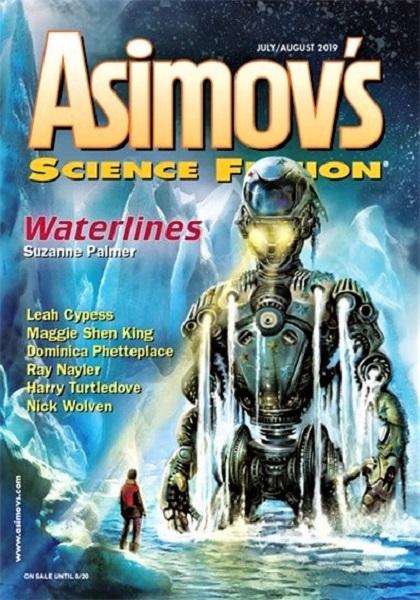
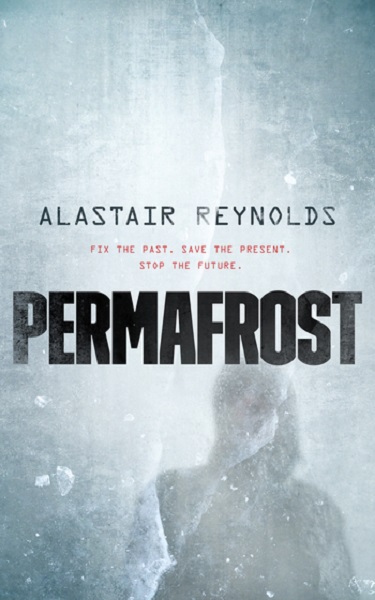
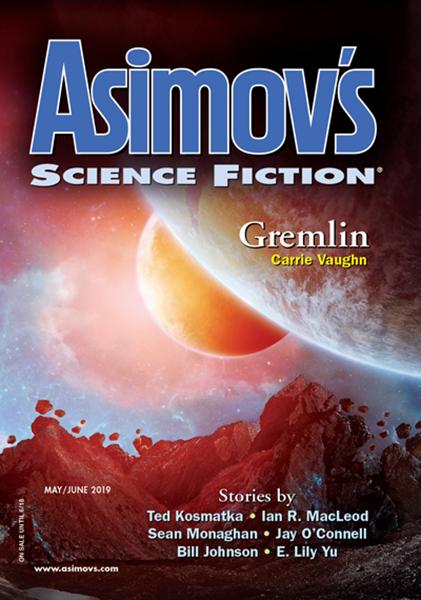
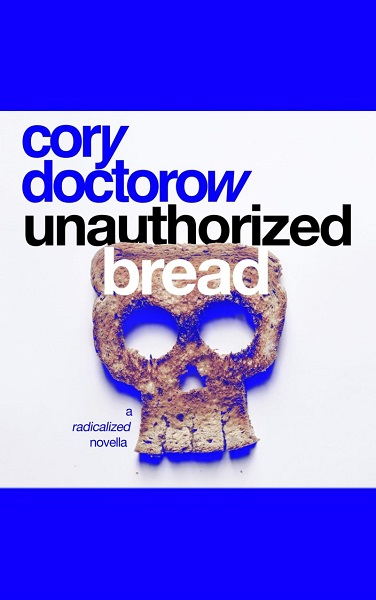
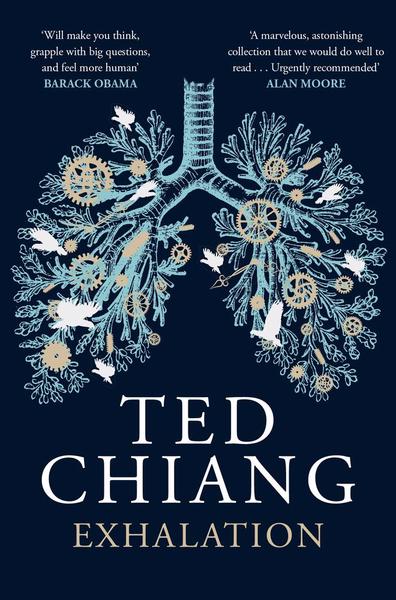
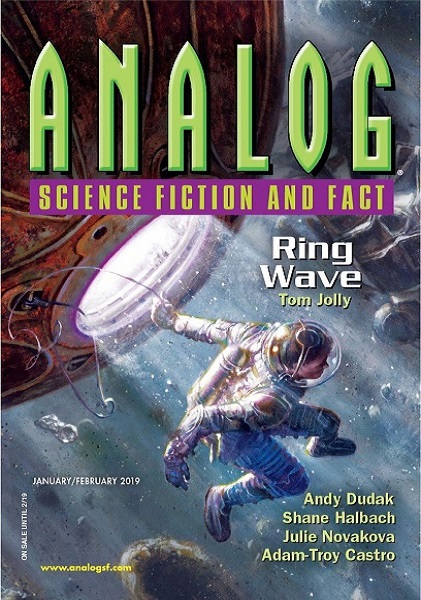
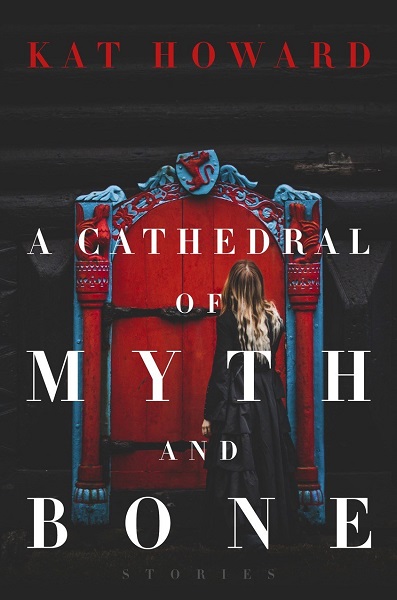

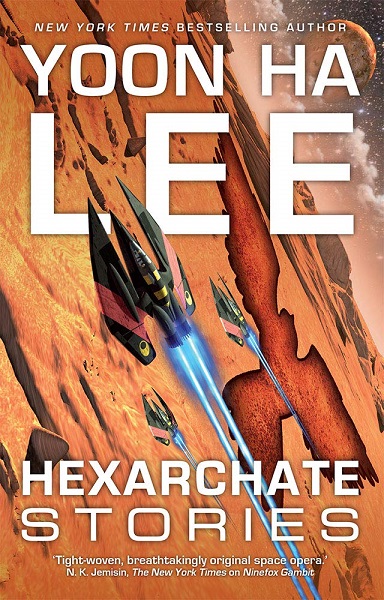
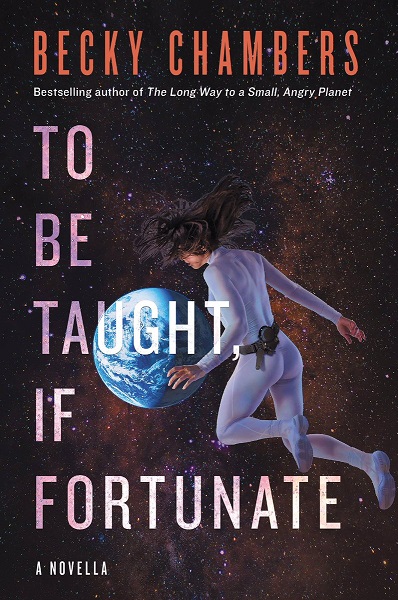
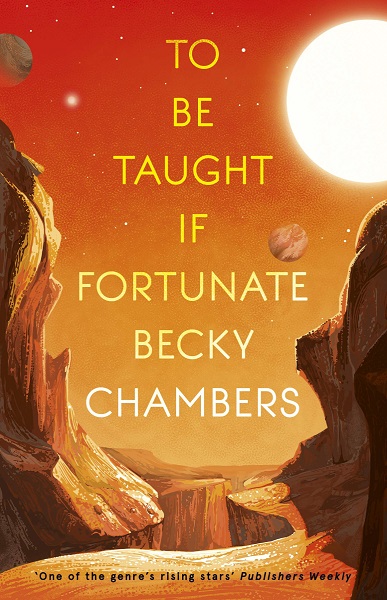
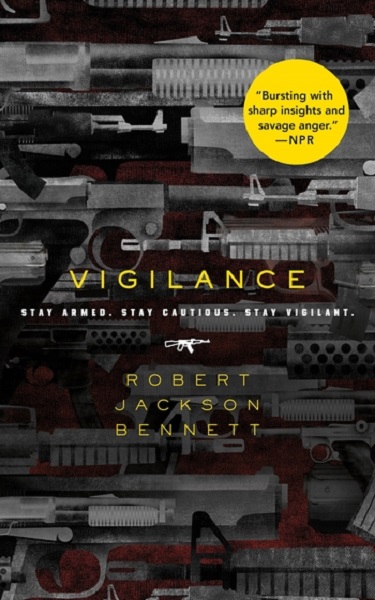
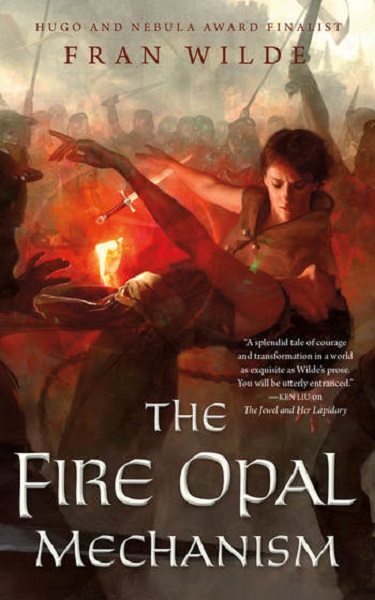
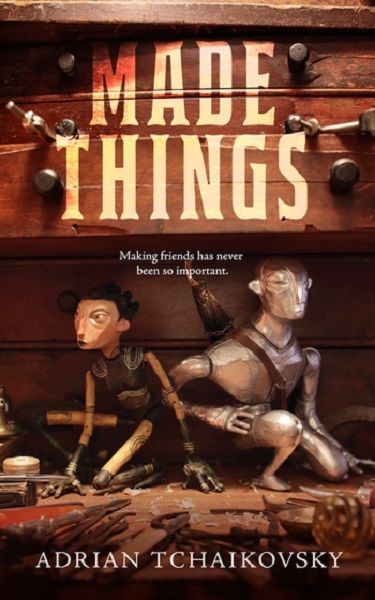
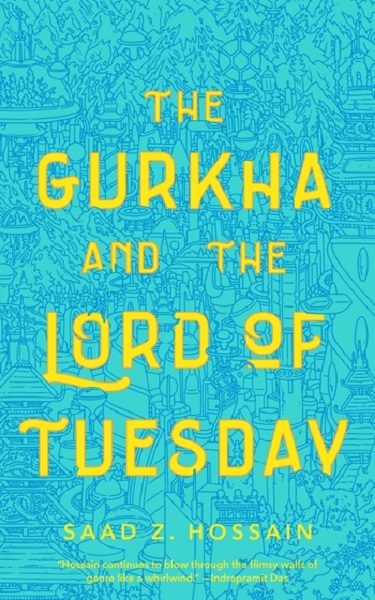
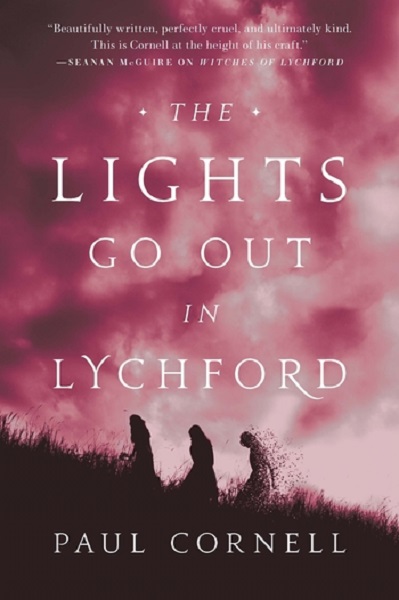
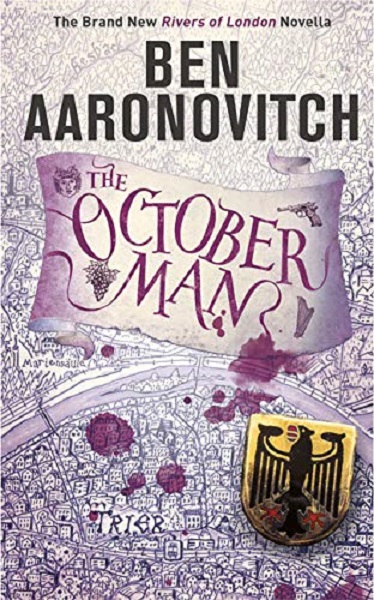
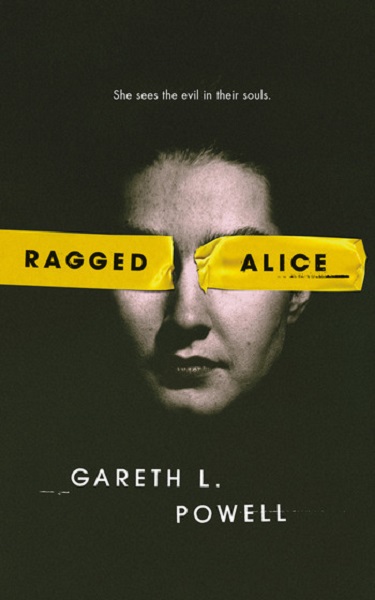

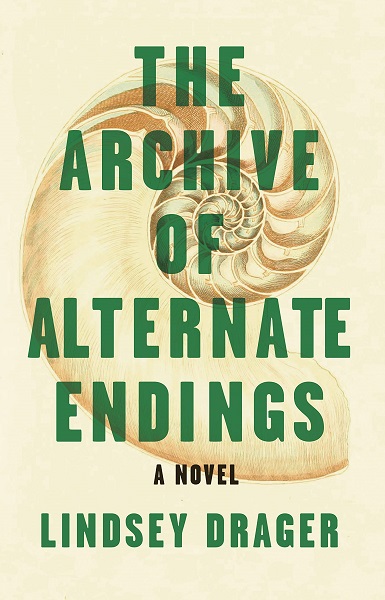
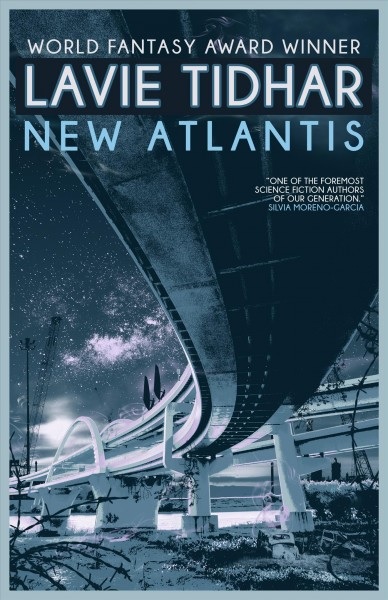

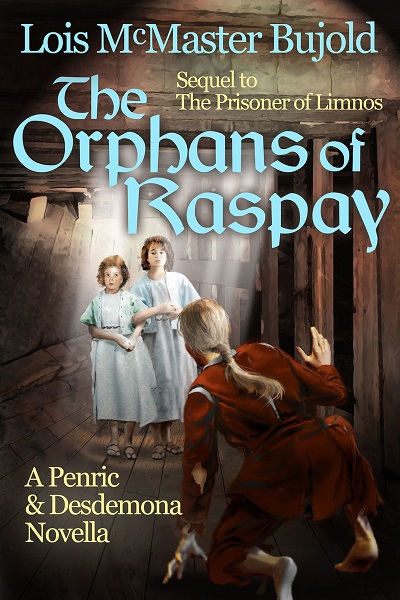
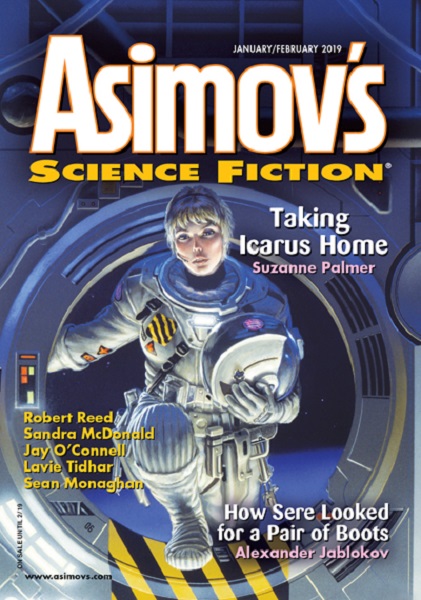
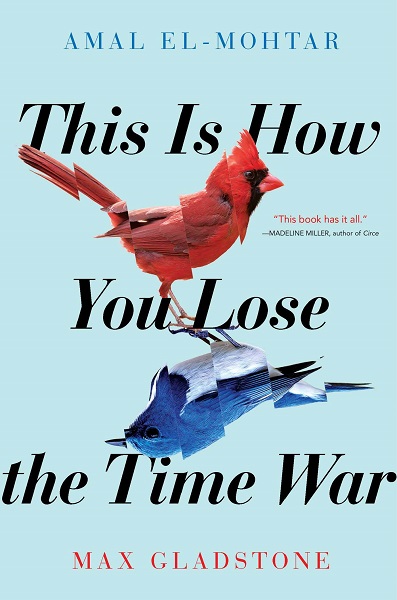
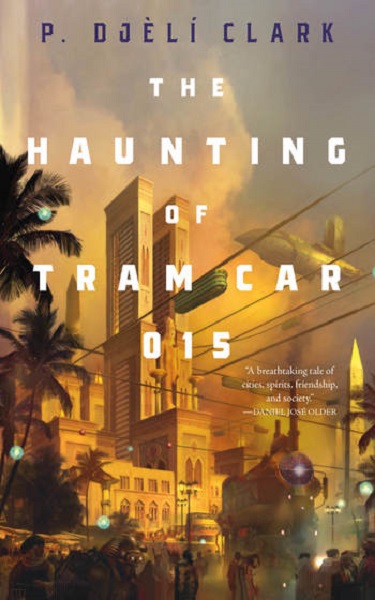
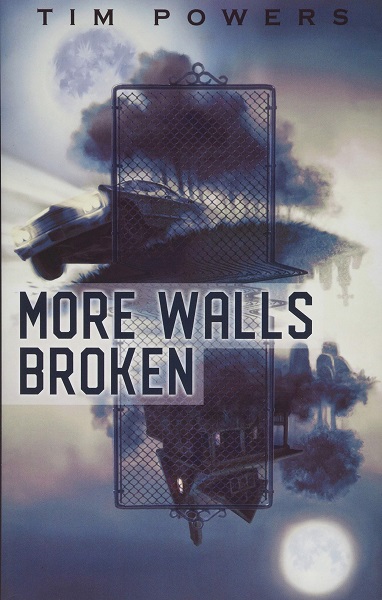
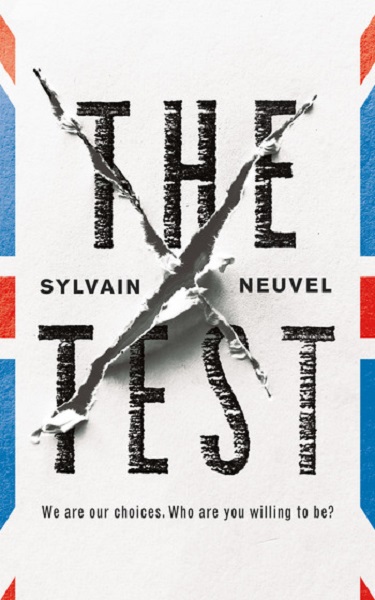
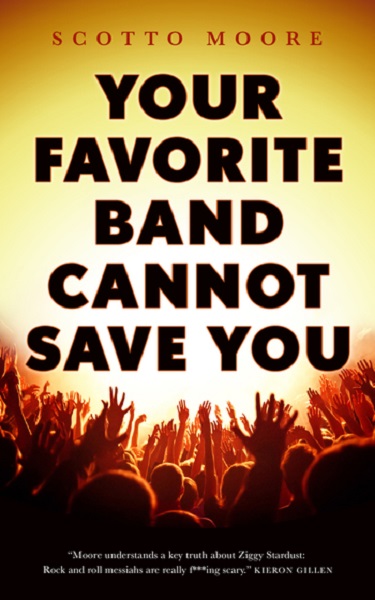
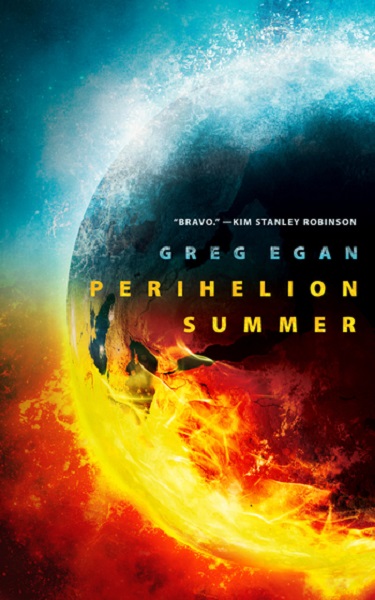
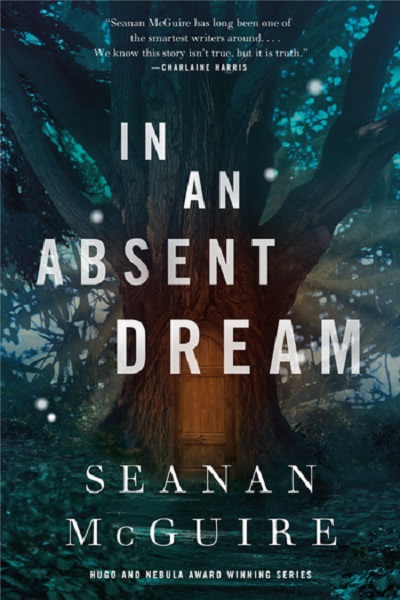
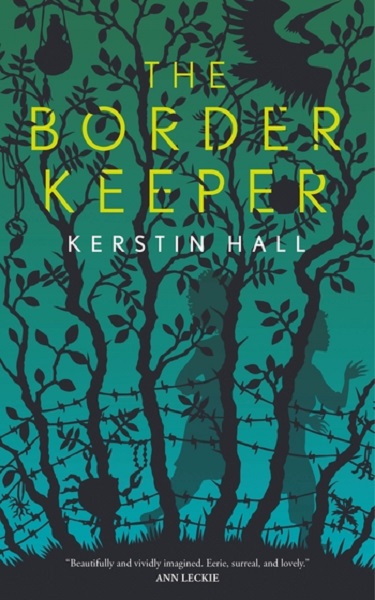
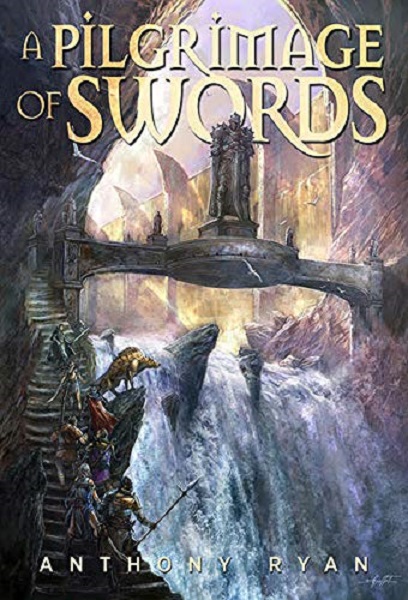
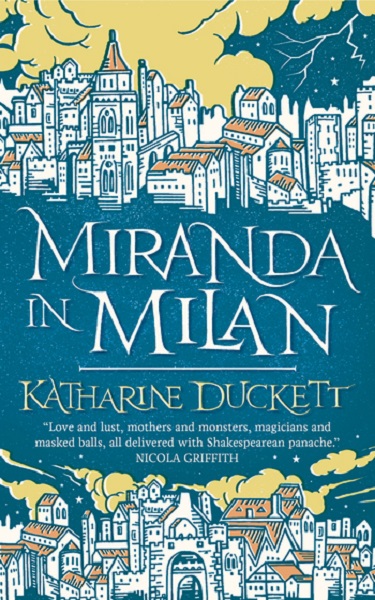
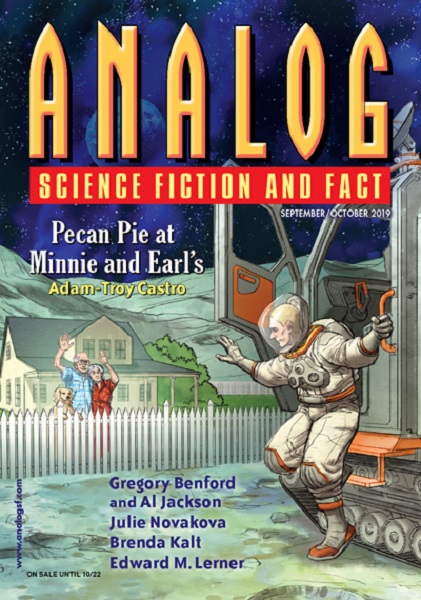
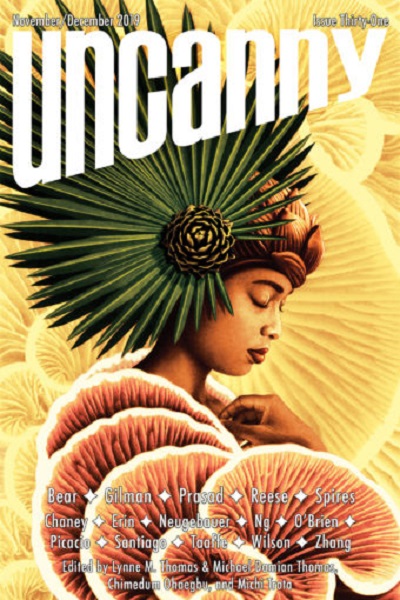
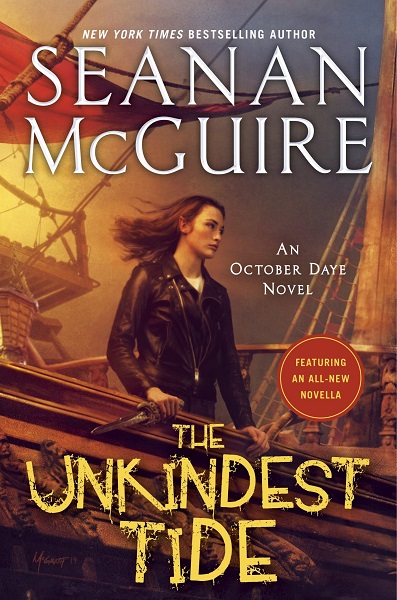
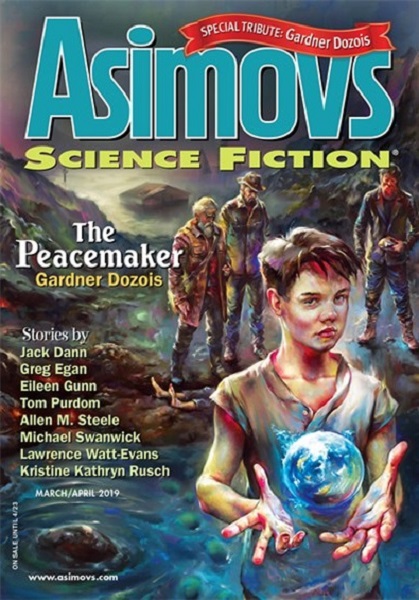
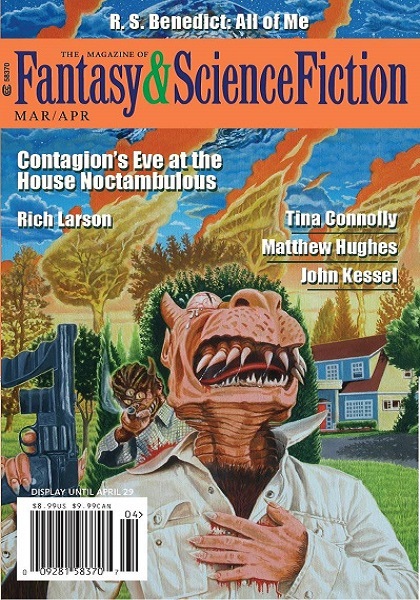
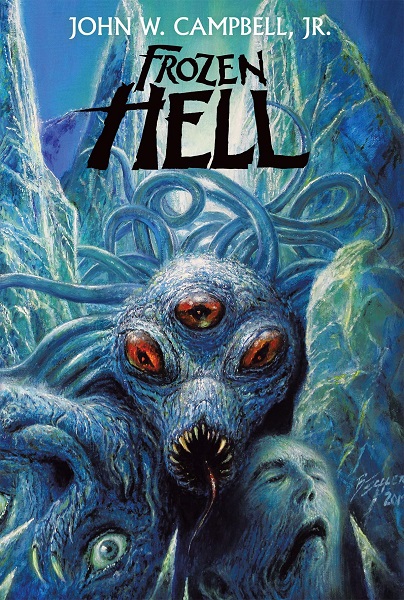
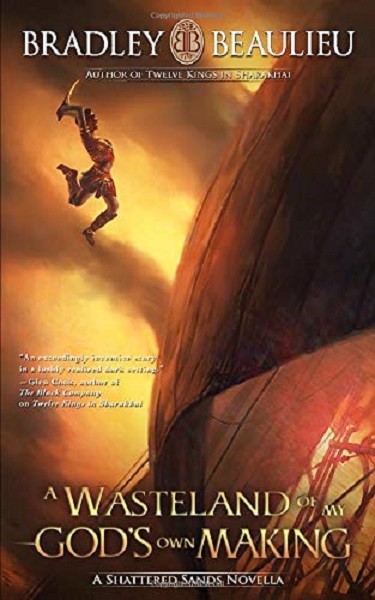
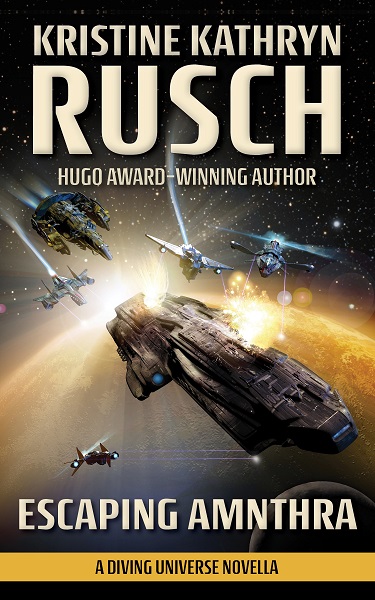



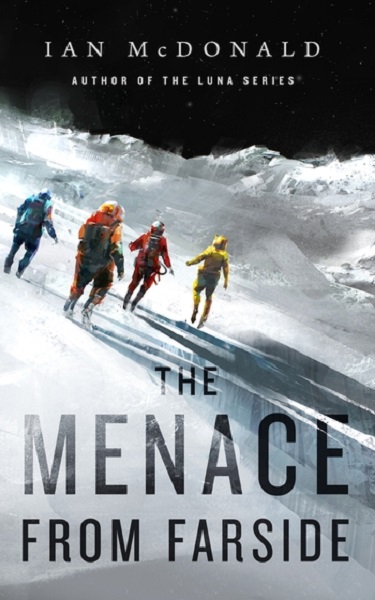
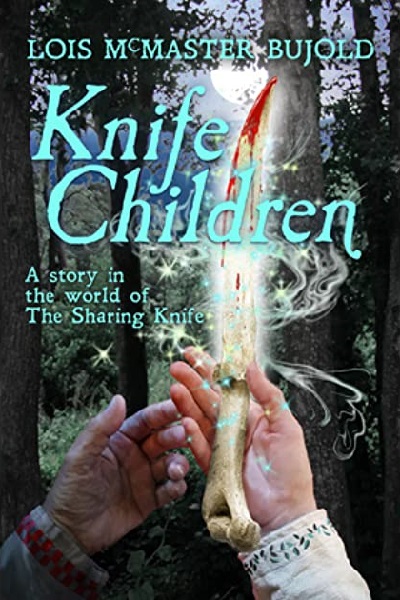
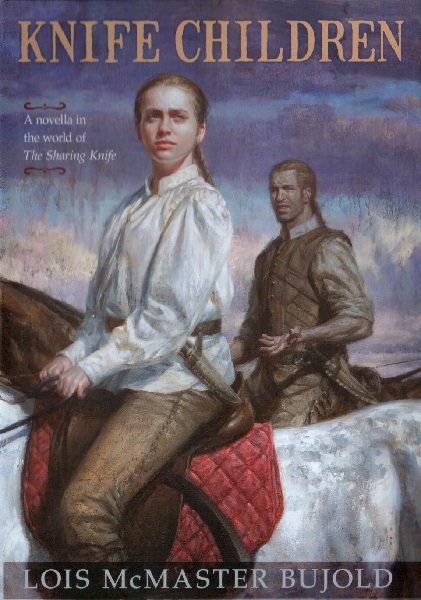
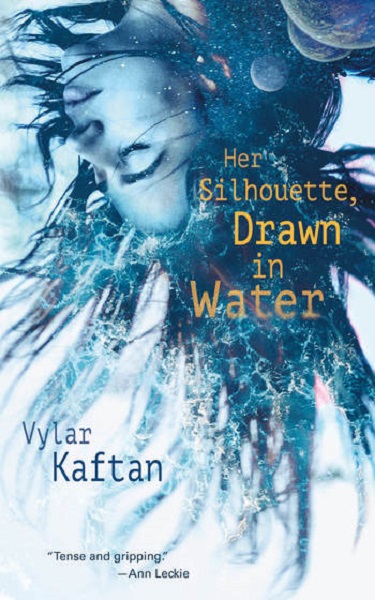

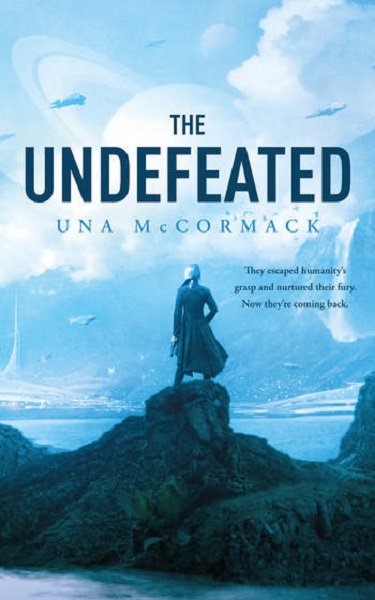
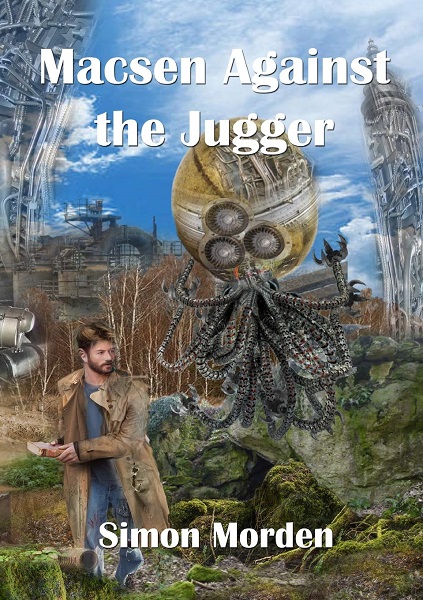
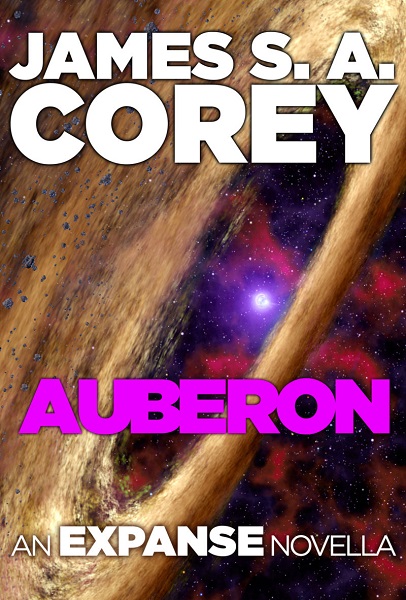

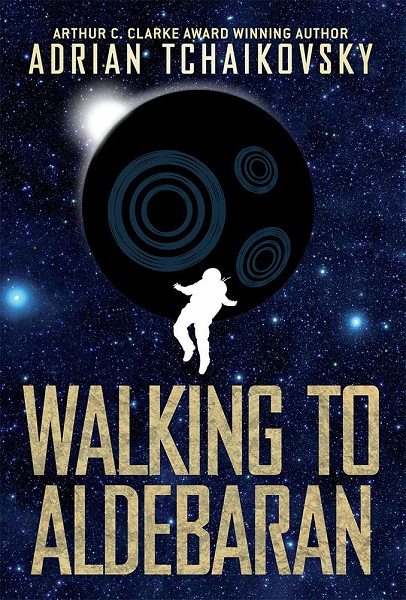
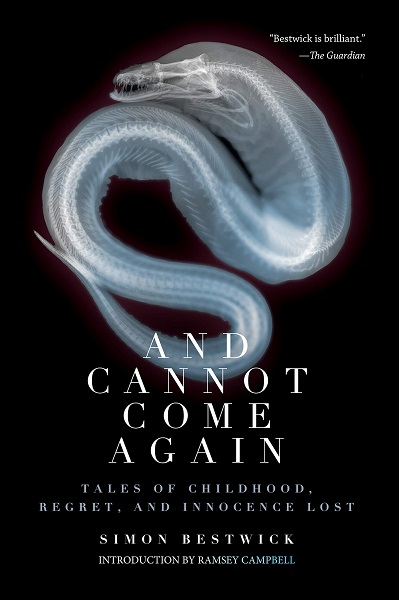
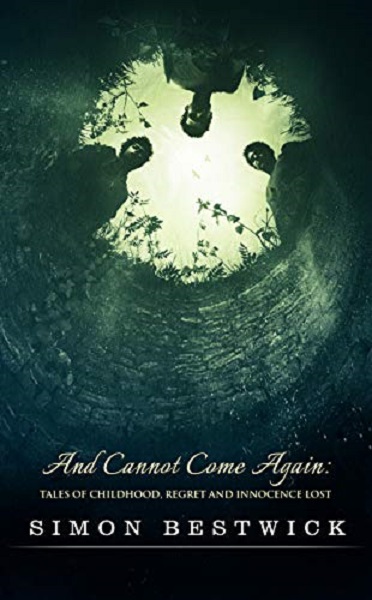
A quick rot13 function for browsers can be created by saving a shortcut in your browser’s Bookmarks / Favorites bar, and then replacing the shortcut link with the text string found here.
You can then highlight / select the rot13’ed text and click the shortcut, which will change the highlighted text in your browser display back to its unencrypted form.
Rocket Stack Rank’s 2019 Novella reviews
Great resource, and great reviews, @JJ. Agree with a lot of the points you raise about the novellas I read last year (several of which are very low down on your list.)
I think I liked Permafrost a lot less than you did. Will check out several of your top picks I’ve not read yet.
JJ, thank you so much for all your work on this!
Thanks for putting this together. You might want to note, the complete text of “Unauthorized Bread” is available at https://arstechnica.com/gaming/2020/01/unauthorized-bread-a-near-future-tale-of-refugees-and-sinister-iot-appliances/
MEGA SUPER POST! Thanks @JJ! 😀
Dan B.: You might want to note, the complete text of “Unauthorized Bread” is available
Thank you, Dan! It’s my goal to provide Filers with free, legal access to as many of these stories as I can. I’ve added the link.
This is great, JJ. Thank you!
Great work, JJ. Kudos for all the time and effort!
Sorry to be picky, but my last name doesn’t have a “c” in it.
Olav, that’s not being picky. My profuse apologies for the misspelling. It’s been corrected. 😀
Thanks for taking the time to read my stuff, JJ. I’m sorry it wasn’t your thing, but I appreciate the honest reviews.
Simon Bestwick: Thanks for taking the time to read my stuff, JJ. I’m sorry it wasn’t your thing, but I appreciate the honest reviews.
As I say in the intro, I’m not big into horror, Simon, so I knew that your stories might not be my thing, but I had never read anything by you before, so I welcomed the opportunity to do so.
I try to make these roundups as comprehensive as possible, because there are a lot of Filers whose tastes vary greatly from mine, and the goal is to hopefully give them an idea which stories they might enjoy (and there are definitely some people here who do enjoy horror).
I’m seeing that of the 3 novellas I listed, only And Cannot Come Again is actually a 2019 release (my apologies, I’ve been rather ill, so it was a struggle to get everything right in this post). I’ll leave the others in, but mark them clearly as not being from the 2019 award year.
Much appreciated, JJ, and get well soon.
Also, Simon — thank you very much for your response in pulling your book and supporting the authors who’ve been cheated and treated so poorly by the publisher. 👍
Thanks, JJ – very glad to report that it’s found a new home!
Some comments for ones that I didn’t quite like enough to recommend –
Ormeshadow by Priya Sharma – I agree it’s well-written and vivid, but I remember finding it a tad unsatisfying – too much time brooding, not enough conclusion.
The Gurkha And The Lord Of Tuesday by Saad Z. Hossain – very good concept and a lot of fun to read. In fact it’s on my long-list so not quite sure why I never wrote a rec for it!
Lights Go Out In Lychford by Paul Cornell – after a lacklustre previous instalment I think the Lychford series re-finds it’s feet here, and it looks like a worthy finale is in the offing.
The Border Keeper by Kerstin Hall – possibly this slightly out-weirded me, but I got a little lost here and there. Very interesting and vivid ideas in here though.
Her Silhouette, Drawn In Water by Vylar Kaftan – I remember this not landing for me at all, I’m afraid, although it’s been too long to remember exactly why.
Walking to Aldebaran by Adrian Tchaikovsky – I was expecting to like this more, but it took an unpleasant turn. I think he had two ideas he wanted to mash up, and one of them I really didn’t care for.
Alice Payne Rides by Kate Heartfield – perfectly serviceable time-war style of story but I’m not finding myself very invested in the characters.
I don’t believe any of the Amaxon Forward Collection stories are novellas – they are longish-short stories or novelettes. The ones I’ve tried are
Emergency Skin by N. K. Jemisin – 8,533 words
Ark by Veronica Roth – 10,675 words
Randomize by Andy Weir – 6,825 words
Mark: I don’t believe any of the Amaxon Forward Collection stories are novellas – they are longish-short stories or novelettes.
Thank you for noticing that! According to ISFDB, only the Crouch is a novella. The rest are novelettes or short stories; I’ve removed those, and added Lauren Beukes’ Ungirls, which is an SFF novella from the Amazon Disorder Collection.
Pingback: AMAZING NEWS: 3/1/20 - Amazing Stories
Because I can’t find this story on Goodreads, I’m leaving my review here:
Waterlines, Suzanne Palmer:
4 stars. To me this story has a kind of retro feel, it reminds me of the stories from the 40-60s I read in anthologies as I was growing up in SF.
That’s probably because the hero is a male loner, tryin’ to do his best at the back end of nowhere, Solitary Man, and none of the humans have names that couldn’t come from northwestern Europe. And because a bunch of plot twists seemed pretty obvious to me, though I was pleasantly surprised when gur uhznabvq angher bs gur Renkvnaf jnf qhr gb pbzzba naprfgel, not authorial sloppiness.
But I enjoyed it, and I appreciated how it reflects what I learned when an e-friend spent several winters at the South Pole and blogged about living in Antarctica.
I want to give shout-outs to two vellas I listened to this week: The Deep and Vigilance.
I dnfed Solomon’s novel An Unkindness of Ghosts, but I really liked the themes of The Deep. It’s about individual and community memories, especially traumatic ones, the costs and benefits of either preserving those memories or forgetting them, and how to acknowledge and honor those memories constructively. I wasn’t all that thrilled by the story structure or prose, but it was serviceable enough — it certainly didn’t bother me the way Ghosts did. In audio, very mediocre narration by Daveed Diggs.
And then there’s Vigilance by Bennett. This is a ferocious near-future extrapolation of the intersection of gun culture with media manipulation. It’s easy to see how he won Edgar and Shirley Jackson awards with this kind of sharp, deeply cynical writing. The end reminded me a bit of the ending of Night of the Living Dead, which was a distraction, but much of the story had me pretty much agog. In audio, excellent narration by Mark Boyett.
I want to give a shout-out to re-checking your ballot. I realized I never put Paul Cornell’s “Lychford” novella on my ballot, which is bizarre of me, given that I loved it. This is 100% my fault – not the con’s web site. I somehow spaced on this till just now, as I was glancing over this post again.
I have my own file where I track my noms, with some additional notes/information. I didn’t have it there, either! D’oh.
Good grief, Kendall, get your head in the game! 😛
Oh, also, I reiterate my rec for this novella. 😉
My library finally got the Sharing Knife novella, Knife Children. It’s a quick, enjoyable read, which avoids any of the squickiness of the original series and contains enough backstory that it stands alone fine. It has few surprises, only a couple of dark bits, and some really nice bright bits which might make for a feel-good read for those who need something uplifting right now.
I got a laugh-out-loud moment when I hit a little Easter egg that Bujold inserted for readers:
She rode behind him single-file into the maze of twisty patrol trails, all looking alike to the unfamiliar eye
Pingback: 2020 Novellapalooza | File 770